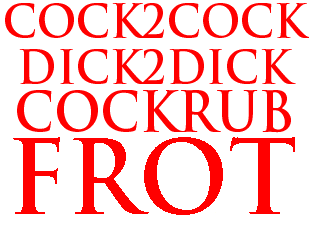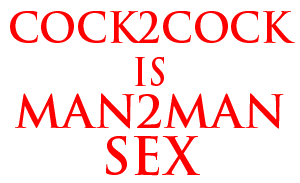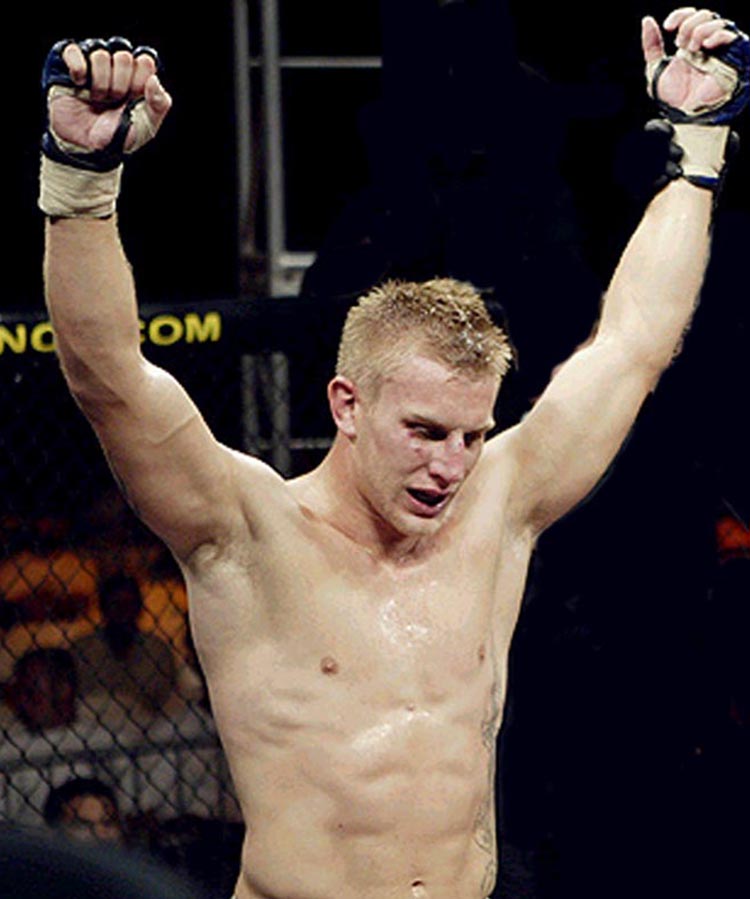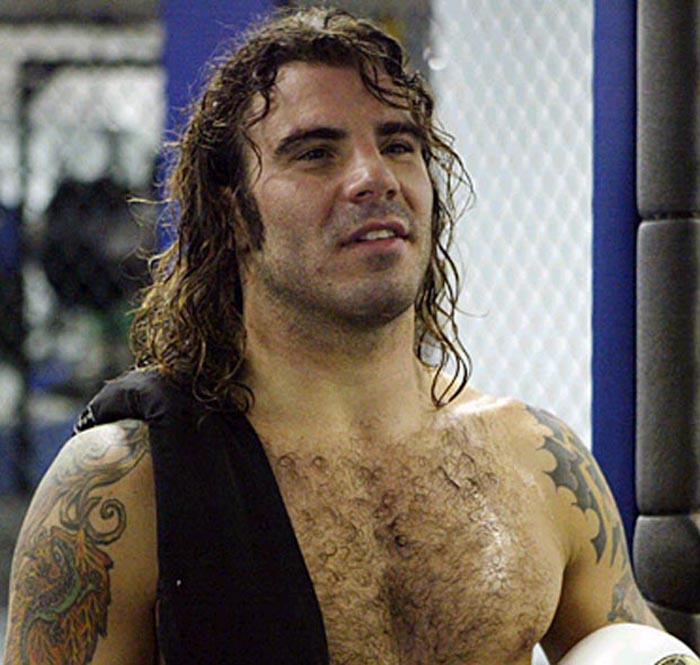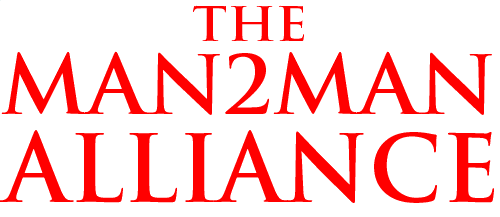




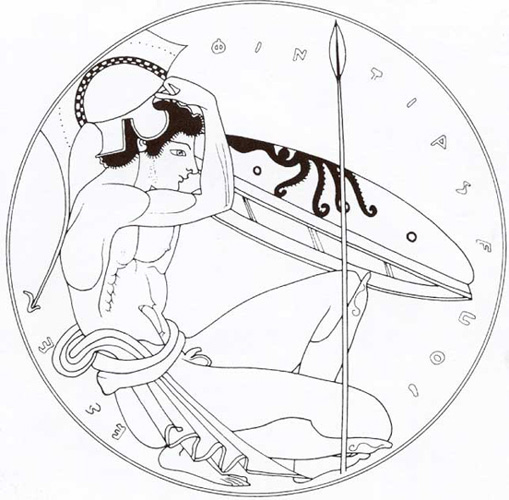




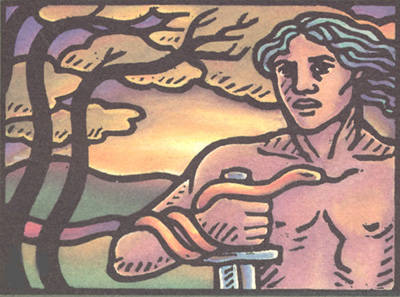


AGOGE
the spear-points of young men blossom there
Reply III
The Longing for Masculinity
1-15-08


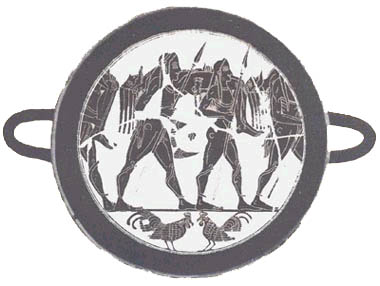


Hi Guys.
This page adds to the discussion we began with AGOGE: The Spear-Points of Young Men Blossom There --
and continued on the page titled AGOGE Reply II -- which I've now subtitled "Flesh and Spirit."
So there are now three pages to the AGOGE discussion:
- AGOGE: The Spear-Points of Young Men Blossom There
- AGOGE Reply II: Flesh and Spirit
- AGOGE Reply III: The Longing for Masculinity
Hopefully, that's not confusing.
I've divided the AGOGE discussion into separate pages because the replies, and in particular my replies, are long -- too long, in my view, for a single page.
So: If you've already read
you don't have to re-read them.
If you haven't read them, I encourage you to read those pages now -- because they'll enrich your life as a Man and as a Warrior.
Now, this present page begins with a reply from Redd, in which he speaks of the longing for masculinity which males in our de-masculinized age experience so sharply -- and continues with a reply from me.
I hope you enjoy it.
As is true throughout the site, this page, and like the others in the AGOGE series, is meant to help you understand your present situation --
and to show you the way home.
Bill Weintraub
January 15, 2008









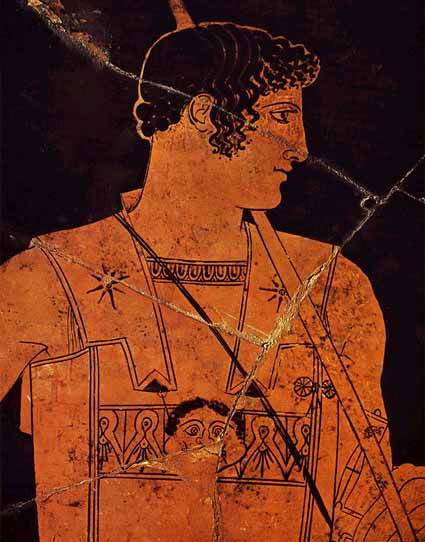


Re: AGOGE: The Spear-Points of Young Men Blossom There
12-26-2007
My sister's boyfriend is fifty, dating again after twenty years of being single resulting from divorce. He has two adult daughters and a twelve year old son, and he epitomizes the longing for Masculinity that men desire and need.
As you know, I don't believe men are straight or gay. I think men are men, and most of us are confused about what being a man is. Gay-identified men seem to think effeminacy and sodomy define them, and the straight-identified man seems to think that his relationship with women defines his masculinity. Many gay-identified men denounce their manhood because they believe in the heterosexual paradigm of male and female, thinking that a gay relationship requires that one of the males in a couple assume the feminine role. The straight-identified man is probably worst: he frowns on anything masculine outside of sports and cultivates a relationship with his female partner only. She is his exclusive relationship.
I'm on a dating internet site, and one of my matches said that she wanted a man who would be her "everything" and she would be his "everything." This idea that a woman and man could be each other's everything is fantasy. NO woman can be a man's everything, and no man a woman's. Married men and straight-identified men suffer because, I believe, they lack male companionship. They lack the freedom to enjoy men's company non-sexually for fear of desiring that company sexually. They have bought into this idea that a woman can be their "everything." Heterosexualism champions this false idea of "everything" through another concept, "soulmates."
The movie "Deck the Hall" staring Danny Devito and Matthew Broderick demonstrates this fear in the scene where Broderick's character is returning to consciousness after falling into a frozen pond. Devito strips the unconscious Broderick naked, strips naked himself, and cuddles with Broderick in a sleeping bag to generate warmth. Broderick comes to and once he realizes he's naked, body-to-body with Devito, Broderick screams nonstop. The message: "I am not gay; I don't touch other men." Broderick's character turns a non-sexual situation into a sexual one.
What's problematic with this scene and scenes in other films that show similar reactions of men who come or might come body-to-body with men is this: despite the non-sexual nature of the scene, the heterosexual notion of man that men don't touch men prevails. Professor Ibson makes a good point on this in Picturing Men. Professor Ibson cites Douglas Allanbrook. Ibson says "Allanbrook reminds us (without directly saying so) that it is just as inhibiting to believe that intimacy must involve sex as it is to insist that it dare not" (177, Picturing Men).
Heterosexualism and gay have defined all touch as sexual; hence, they distort, maybe "misrepresent" is a better word, all touch whether sexual or not.
Men are suffering because they lack male companionship or male intimacy because they "believe that intimacy must involve sex" and they suffer because they fear society's "insist[ing] that [male intimacy] dare not [involve sex].
I've said once that I believe that the violence (the child and spousal abuse for example) we see men enact has a strong bearing in their lacking male intimacy. Denying men their natural right to express their aggressive manhood creates frustrated, angry men.
Back to my sister's boyfriend: He recognizes his timidity, his son's timidity (I recognize mine), and I think most men recognize their timidity. We see timidity in other men. And we hate timidity. We hate that as boys our mothers protected us from being hurt. We hate that we were taught to fear a fight, to fear a punch, to avoid roughhousing with the boys.
Yet, Bill, and here's where heterosexism emasculates boys, we were condemned, usually by those very people who protected us, for not being tough. Boys in my neighborhood were dubbed sissy not because they were gay but because they were not tough; they didn't play sports well, which was the main way of determining toughness.
You know what though? Not every man can succeed at conventional sports like football or hockey or basketball. But all men can fight. ALL MEN AND BOYS CAN FIGHT.
Football or hockey does not demonstrate masculinity like fighting.
Just think what would have happened to a boy who after a fight had his buddy throw his arm around the fighter's shoulders and congratulate the fighter's efforts? That gesture would be similar to Patrick's father's punching Patrick in the mouth. Fight. Don't worry about winning. Just fight. Even if a boy cries, as long as he fights, his tears aren't defeat.
On a different note, I hope Patrick is finding some relief. His troubles seem to have ignited your fire for the passion you have for the Alliance. You celebrate him.
Godspeed
Redd
Re: AGOGE: The Spear-Points of Young Men Blossom There
1-15-08
Thank you Redd
Another really insightful and important post.
And because, once again, my reply is long, I'm breaking it into three sections:

In his reply, Redd, speaking of the longing for masculinity, describes several key attributes of our heterosexualized society, and the ways in which they impact Men.
Heterosexualization, remember, is an historical process which
- eliminates same-gender environments and replaces them with mixed-gender environments;
- creates and then imposes upon men a false definition of masculinity, in which "real men" are constrained to be, both affectionally and sexually, exclusively heterosexual; and
- medicalizes and ghettoizes same-sex affection, intimacy, sex, and love; while dictating that all same-sex sexual expression be played out within the heterosexual paradigm of male and (pseudo-)female -- thus, the gay male categories of top/bottom, active/passive, dominant/submissive, butch/bitch.
Crucial to this process is the denigration, curtailment, and dismissal both of the male's natural male aggression; and of his natural male attraction.
So: under heterosexualization, the male is steadily divorced from contact with other males, and forced into constant contact with females; while the two key attributes of Natural Masculinity, male aggression and male attraction, are forbidden him.
Redd:
Gay-identified men seem to think effeminacy and sodomy define them, and the straight-identified man seems to think that his relationship with women defines his masculinity. Many gay-identified men denounce their manhood because they believe in the heterosexual paradigm of male and female, thinking that a gay relationship requires that one of the males in a couple assume the feminine role. The straight-identified man is probably worse: he frowns on anything masculine outside of sports and cultivates a relationship with his female partner only. She is his exclusive relationship.
That's exactly right.
Under heterosexualization, straight-identified men define themselves by their relationships to and with women;
while gay-identified men believe that their relationships -- or just sexual trysts -- must follow the heterosexualized model of male and female.
And notes Redd, society strongly encourages both men and women to think of the male-female dyad as exclusive and core.
Thus, on internet dating sites, we see women seeking men who will be their "everything"; while the expectation is that in a heterosexual relationship, the male and female will be "soulmates."
Yet, as Redd points out,
This idea that a woman and man could be each other's everything is fantasy. NO woman can be a man's everything, and no man a woman's. Married men and straight-identified men suffer because, I believe, they lack male companionship. They lack the freedom to enjoy men's company non-sexually for fear of desiring that company sexually.
"They lack the freedom to enjoy men's company non-sexually for fear of desiring that company sexually."
That too is exactly right; and Redd goes on to explore the way that fear is delineated in popular entertainment, such as movies -- which in turn generate cultural messages which further reinforce those heterosexualized cultural norms.
Redd also cites the scholarly literature:
Professor Ibson makes a good point on this in Picturing Men. Professor Ibson cites Douglas Allanbrook. Ibson says "Allanbrook reminds us (without directly saying so) that it is just as inhibiting to believe that intimacy must involve sex as it is to insist that it dare not" (177, Picturing Men).
Right.
So let's talk about Ibson and Allanbrook.
First off, we discuss Ibson and his work in Warriorhood and Intimacy; if you haven't read that post or don't remember it -- please read it now by clicking here.
Why?
Because you won't understand the rest of this discussion if you don't have at least some understanding of Ibson and his basic premise.
Again, you can click here to read about Ibson's work, and you owe it to yourself to do so.
Now, I want to quote Ibson's observations about Allanbrook at more length -- because I think those observations will resonate strongly for the Men of the Alliance.
Here's Ibson in Picturing Men:
Many of Life [Magazine]'s wartime images and countless examples of wartime vernacular photography could serve as illustrations for one of the most moving evocations of the war, Douglas Allanbrook's memoir, See Naples. Allanbrook, who after the war became a renowned composer and harpsichord player, spent most of the war as an infantryman on hazardous duty in Italy. His memoir captures the war years with stunning detail, grace, and power, yet it is curiously shapeless and out of sorts in dealing with his life as a civilian, despite his considerable postwar accomplishments and the wives and sons who came along after he left the army. "In the middle years," Allanbrook writes as he approaches old age, "there is no drama, death is not imminent, and there's work to be done: children to be raised, music to be written, money to be earned." The war was apparently a hard act to follow.
Among other things, See Naples is a testimony to profound friendships formed during or in anticipation of battle. Writing of men who had "what some of us called, without malice, a second marriage," Allanbrook reminds us (without directly saying so) that it is just as inhibiting to believe that intimacy must involve sex as it is to insist that it dare not, a point implicit in some of Life's wartime pictures and in so much of the war's vernacular photography.
Allanbrook's own most memorable friendship was with Leonard, a soldier who was killed "so soon after our arrival at Naples." Leonard had been a tobacco farmer before joining the army; nearly fifty years after Leonard's death, smoking a cigar could remind Allanbrook of his friend's voice. Indeed, Leonard's voice reverberates throughout Allanbrook's memoir, especially his unanswered beckoning to Allanbrook to join him as they slept outdoors on a December night in Italy. "He was cold; he wanted me. Together we would be warm," Allanbrook recalls a half century later. Although their association had other moments of closeness, regret over his failure to accept this particular offer of intimacy seems paradigmatic, the essential controlling emotion of the rest of Allanbrook's life: "I had not answered then and never would or could. Was that voice, calling out my name, to be forever the guarantor of my loneliness, the only permanence granted or even possible, even though it had no substance and no existence except as a source of infinite regret? Was love to be forever linked to what was no longer and perhaps had never been?" A sense of unrealized possibility permeates Allanbrook's memoir, as it surrounds so many of the images of men that were produced during the war.
Though no veteran's memoir equals Allanbrook's in its melancholy sense of unfulfilled promise, countless autobiographies by veterans speak of the utterly singular importance of comrades. The first chapter of novelist Robert Kotlowitz's haunting memoir, Before Their Time, is titled "My Buddies." Though he ridicules "the absurdly lugubrious lyrics of 'My Buddy' when sung by another soldier sarcastically," it is clear that his wartime associations shaped the rest of Kotlowitz's life with "the accumulated weight of sadness and nostalgia." To Samuel Hynes, a marine pilot during the war and later a Princeton professor of literature, simply no other group was analogous to a squadron -- an involvement that was clearly sexual, with a depth of commitment that exceeded that of "most marriages." Recalling that he and his fellow flyers had felt no longing for women, Hynes would wonder forty years later, "Were we living our sexual lives in bombing and strafing? Or in the comradeship of the all-male, committed life of the squadron?"
...
Even one of the least sentimental of all of the war's memoirs, E. B. (Sledgehammer) Sledge's gritty and gripping account of marine battles for Peleliu and Okinawa, With the Old Breed, celebrates the worth of comradeship. "War is brutish, inglorious, and a terrible waste," writes Sledge, "an indelible mark on those who are forced to endure it. The only redeeming factors were my comrades' incredible bravery and their devotion to each other. Marine Corps training taught us to kill efficiently and to try to survive. But it also taught us loyalty to each other -- and love."
Only in war would mainstream American culture in the mid-twentieth century make it easy for a man to express such sentiments about another man to whom he was not related.
And that's the tragedy of the last half of the last century, a tragedy which will continue to play out if we don't stop it.
Ibson is clear that Allanbrook's refusal to share Leonard's bed was tragic, that Allanbrook's failure at that crucial moment to be what he manifestly was intended to be -- a MAN -- would scar and disfigure the rest of his life --
a life spent in the sort of conventional "heterosexuality" which our heterosexualized society so values -- wife, work, children, money.
But no MEN, and no MAN2MAN Bond.
In such a set-up, the male is little more than an adjunct to the woman.
He impregnates her and he supports her and her children.
But he never gets to be himself -- a MAN.
And the toll upon him is dreadful.
Says Ibson:
[Allanbrook's] regret over his failure to accept this particular offer of intimacy seems paradigmatic, the essential controlling emotion of the rest of Allanbrook's life: "I had not answered then and never would or could. Was that voice, calling out my name, to be forever the guarantor of my loneliness, the only permanence granted or even possible, even though it had no substance and no existence except as a source of infinite regret? Was love to be forever linked to what was no longer and perhaps had never been?" A sense of unrealized possibility permeates Allanbrook's memoir ...
"A sense of unrealized possibility permeates Allanbrook's memoir ..." -- as it no doubt permeated the rest of his life.
Unrealized possibility -- and loneliness.
"I had not answered then and never would or could. Was that voice, calling out my name, to be forever the guarantor of my loneliness ... a source of infinite regret?"
Allanbrook was married and had children -- but he was lonely.
His life was permeated with a sense of unrealized possibility -- and loneliness.
And infinite regret.
As are so many of your lives -- or as so many of your lives will be.
I can say that with certainty, because I know what you guys tell me in your letters --
letters from men who are forty or fifty or sixty or seventy years old -- one was from a man who was eighty-three -- and who've never lived as MEN.
They've lived instead as "heterosexuals," the deformed creations and creatures of heterosexualization, who've spent their entire lives dutifully suppressing their completely normal and natural male desires; who've lived their entire lives in thrall to a heterosexualized notion of "masculinity" which they KNEW IN THEIR HEARTS -- was a LIE.
I hear that story over and over again.
It is hardly unique to Douglas Allanbrook.
If it were, this website -- and more to the point, this Alliance -- wouldn't exist.
There'd be no need of it.
But these is a need.
A HUGE, EXIGENT NEED.
Which you guys, in turn, NEED to recognize by supporting this site and our MAN2MAN Alliance -- through DONATING.
Otherwise, there'll be nothing.
Now, Ibson, in his book, appears to deplore the notion that "masculinity" should or must or can be associated with "toughness."
I say that Professor Ibson "appears to deplore the notion" because, due to Patrick's illness, I still haven't read all of his book.
So I'm not precisely sure where Ibson stands on the whole issue of male aggression.
But I'm issuing these caveats because Ibson is part of the academy, which today tends to view "masculinity" as "culturally constructed."
What does that mean?
Simply that elements of male behavior are shaped by culture.
And we agree -- to a point.
Just as we agree that elements of sexual behavior are shaped by culture.
That's why for decades oral sex was the majority practice among gay-identified men -- and anal "sex" denigrated; and why, suddenly, in the 1970s, anal became the majority practice and oral was deemed to be merely foreplay.
Not because there was a sudden mutation in that still-to-be-discovered gay gene we're always hearing about, but because there was a *cultural* change.
But that doesn't mean that culture is the sole determinant of sexual expression.
Because -- we not only argue but we KNOW -- beneath the culturally-mandated oral or anal, there is a PHALLIC component and indeed a MUTUALLY PHALLIC component to MALE-MALE sexual expression which is not cultural, but which is BIOLOGICAL.
And which cannot be forever denied -- not, at least, as Danielou points out, without dreadful consequences.
Because if it's SEX, and it's MAN-to-MAN, then it must be PHALLUS-to-PHALLUS.
Sex is GENITAL, and the male has only one organ capable of a truly genital response -- his PHALLUS.
So when we're talking about genital sex and Men and a truly and mutually and directly genital experience -- PHALLUS-to-PHALLUS is the alpha and omega of the discussion.
Similarly, while we might agree with Ibson that elements of what's called "masculinity" are shaped by culture -- that's why we speak of a "cultural" or "social" masculinity which in reality is always a pseudo-masculinity --
we understand that Men possess a core and biological Masculinity which we refer to as Natural Masculinity.
And that True and Natural Masculinity is quite independent of culture.
Does Ibson understand that?
I don't know.
He is, as I say, part of the academy.
And in the academy it's fashionable to deride traditional -- that is to say, biologically-based -- notions of masculinity.
For example, in talking about the intense male intimacy engendered in the American military from the Civil War through the first World War, Ibson says
The heat of battle may understandably generate a particular warmth of feeling in what Barbara Ehrenreich has called "one of the most rigidly 'gendered' activities known to humankind."
Ehrenreich of course is a feminist, and not the sort of feminist who'd find the 'gendered' activities of the Warriorhood in any way praiseworthy or desireable.
Ibson continues:
This warmth between men may have been all the more appealing in a modernizing society, in which close personal relations were hard to come by. "The myth of camaraderie in war," George L Mose has written, "promised meaningful relationships in an ever more abstract and impersonal society, a shelter from the outside world where the conflict was transformed into an opportunity for self-realization."
"the myth of camaraderie in war"
Does Ibson really believe the sort of gobbledy-gook someone like Mose puts forth?
I don't know.
Mose says that "the myth of camaraderie in war promised meaningful relationships..."
Implicit in that statement is that the promise of meaningful relationships was a lie -- a myth.
Yet as we've just seen, when describing the work of World War II memoirists of masculinity like Douglas Allanbrook, Robert Kotlowitz, Samuel Hynes, and E B Sledge, Ibson finds their descriptions of wartime Warrior camaraderie immensely appealing --
and compelling --
and convincing.
And not at all mythical.
Rather, Ibson speaks of "profound friendships formed during or in anticipation of battle."
Right.
Male-male friendships, profound friendships, which surpass hetero marriage, and which surpass the love of women.
Those are Warrior bonds.
Bonds formed between Men at War or in anticipation, as Ibson says, of War.
And Ibson celebrates them.
But in a footnote to the Mose quote, Ibson notes that another writer
depreciated wartime fellowship because it was "purchased at the price of brothers' blood."
To which I reply that it's true that bloodshed and/or the threat of bloodshed lies at the heart of Warrior altruism -- which we define as the Warrior's willingness to die for his fellow Warriors;
but that doesn't make the fellowship thus created in any way false, or in any way beneath worth.
To the contrary, it's of the highest worth.
And it's beyond me how anyone could think otherwise.
The world consists of lions and lambs, not lambs and lambs.
And neither technology nor ideology will change that.
That said, there is a question:
Can the fellowship men feel in wartime -- be created without war?
I don't know.
What I do know is that Men need to Fight.
And that that need is not cultural or culturally constructed, but is biological.
Which is why we see, as NW just described, boys and men gathering in small circles to watch as two of their number strip and fight, bare chest to bare chest and bare skin to bare skin, all over the world.
Again, this is a question not of culture, but of biology.
A point which Redd makes so very well in the bludgeoned message thread:
Theory today, coming from the humanities in academia, ignores biology and science generally. Theorists often focus on post-structuralism introduced in the late 1960s by French post-structuralist Jacques Derrida who introduced deconstruction. Basically, deconstruction claims that God is dead, hence, so is the author of literature, as Roland Barthes purported. Nothing is stable, especially knowledge.
Theorists focused on language without considering science, the more stable form of human knowledge. A form of science coined "homosexual" in 1869, but during the time man2man that was natural, meaning masculine, wasn't questioned, wasn't suspect because it was man; it was communal. Men who attempted to be feminine led to the term "homosexual."
Aside: As I mentioned in another thread, I think "homosexual" as it was intended is a misnomer. The human species had been scientifically established as homo-sapien by the late 1800s--"homo" to mean "same." Logically, to me at least, "homo" sexual defines the sexuality of all "homo" sapiens. And given the fact that most mammalians demonstrate "bi"-sexuality, "homosexual" seems to better define homo-sapiens, that is, species who are attracted to their own species. Which means that all homo-sapiens are homo-sexual; all are attracted to their own species. Hence, whether the attraction is man2man, woman2woman, and/or man2woman (the combinations of which don't really matter), the attraction is homosexual. "Heterosexual" would mean two different species.
Now if we notice what heterosexualization has done to communal relationships, we would see, as Bill and others have noted (see The Power of the Masculine), that theorists have created a culture that is not scientifically sound.
Terms like "hyper-masculine" are theoretical. "Hyper-masculine" assumes that some part of masculinity is feminine and that man's natural aggression is "hyper." If you notice, many little boys' natural aggression is dubbed "hyper"--e.g., "hyperactive"--and the little boys are often drugged to quell their natural expression of masculinity. Heterosexualization attempts to control natural male aggression early in a man's life when he's a boy.
Terms like "hyper-masculine" impose a cultural paradigm wherein masculinity is understood from the feminine, not from the masculine. "Gay" as analists promote and define it is effeminate. Analists are men who think that they have a "sexual orientation" that makes them effeminate. They attempt to ground "sexual orientation" in science, when "sexual orientation" is a cultural term, not a scientific one.
Man is Man. He ain't got no feminine in him. His glory is his masculinity, just as women's glory is their femininity. Man is whole; woman is whole.
Bill makes another profound point: heterosexuality is the oddity. Forcing men and women to interact has created problems, I think, with abuse of all sort. The operative word in that last sentence is "forcing." Of course, I don't mean that men and women aren't attracted to each other because they are. But they can be and are attracted to each other without being forced to socialize.
In short, a lot of what we "know" about society are cultural creations. Man, masculinity, manhood, etc. isn't a cultural creation. Woman isn't a cultural creation. Man is man; woman is woman. He ain't no woman; she ain't no man. Man is whole and woman is whole. Manhood is divine; womanhood is divine.
Culture has separated man from himself by telling him that he has a feminine aspect, a feminine gene. Rather than recognizing that man2man is man, not feminine.
Redd is correct.
Man is Man.
Man2Man is Man.
Which is why the feelings and behavior which Ibson cites among American soldiers from 1941 to 45 can be found in Men at War and in Men training for War -- that is to say, Warriors -- over and over and over again -- throughout the ages.
Including in Vietnam -- which Ibson appears to discount -- and I guarantee you, in Iraq.
Here's a true story from the first of those, Vietnam:
When I was coming out, in 1972, I met a man, an ex-GI, formerly straight-identified, who'd had a passionate love affair with a fellow grunt while under fire in Vietnam.
His name was Chuck.
His friend -- who was really his lover -- was killed two weeks before they were scheduled for R&R.
So their entire love affair was carried out in the mud and muck of the battlefield.
I asked him if the other guys in the platoon knew, and he said Yes, and that in that situation no one was going to object.
Chuck, who while in Vietnam had also acquired malaria and lost the hearing in one ear, said that he wasn't bitter, that he was glad it happened, that before going to Vietnam he'd been a "redneck" -- that was his word -- and that being in Vietnam had opened his eyes.
He added -- "Compared to what's happened to the Vietnamese people, what happened to me is nothing."
That Jane Fonda-ish sentiment will no doubt sound strange to people in today's America, but it was not unusual among anti-war servicemen of the era.
So -- the 1960s American military may have well been, as Ibson says, a lot more uptight about "homosexuality" than it had been in WW II --
but guys, straight-identified guys, still fell in love with and had affairs with, other guys.
THERE'S NO WAY TO STOP THAT.
And prior to heterosexualization, it would never have occurred to a Warrior class or caste to try to stop it.
On the contrary, it would be encouraged.
Among the ancient Greek Warrior class, male-to-male affection, intimacy, sex, and most importantly, Love, was ubiquitous.
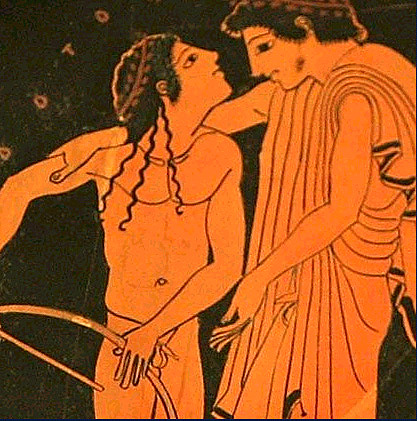
Male-male love was in many ways the defining characteristic of their culture, informing every aspect of it, from athletics to art -- to war itself.
Yet to this day there are many who are afraid to say so.
I came across one such while looking at an Osprey book on Thermopylae.
Osprey Publishing puts out brief, heavily illustrated books on soldiery and war, by a variety of authors, who, on the whole, and in the past, as I note on the Reading List, have been willing to acknowledge the Love of Warrior for Warrior.
But in the case of the Thermopylae book, which is new, the author, Nic Fields, stumbles badly -- I'm not sure why, though it may be because of a nervous editor.
Nervous because many of the readers of Osprey books -- many though not all -- are teenaged boys.
Be that as it may, in discussing the Spartans, Mr Fields has a section titled "male bonding."
In which he acknowledges that the Spartan system of Agogé and syssition was intended to create fierce and indeed unbreakable bonds among the men -- bonds which would stand the test of battle.
But, says Mr Fields, those bonds weren't "homosexual."
Really?
This is why I like to quote the Britannica (1992), which says of the Spartans and the Agogé that
a system of homosexual pair-bonding maintained the normal hoplite bonds at a level of ferocious intensity.
"ferocious intensity"
Truth is, Mr Fields seems confused.
Because after denying that Spartan "male bonding" was "homosexual," he notes that the idea of a "homosexual nature" was unknown to the Greeks.
That's correct.
To the Greeks, same-sex sex was an activity -- not a condition.
But then Fields makes a spurious and specious non-comparison between the Spartans and the Thebans, saying that the Sacred Band of Thebes -- which was made up of 150 erotically-bonded same-sex couples -- was deployed differently.
Well, according to Plutarch, that's true -- maybe.
But it ignores something else Plutarch said: that after using the Sacred Band to defeat the Spartans at Leuctra, the Thebans had the air of schoolboys who'd beaten their masters.
Why?
Could it be because they'd used the Spartan system of "homosexual pair-bonding" to create hoplite bonds of "ferocious intensity?"
In point of fact, there are just a few primary sources for Sparta, as there are for most of Greece in that period:
Plutarch and Xenophon, Herodotus and Thucydides, and Aristotle and Plato.
And in terms of social arrangements, the first two are the most important.
Plutarch says quite plainly and emphatically that by the age of twelve, the boys in the Agogé had male lovers.
While Xenophon, in his Hellenic Memoirs, mentions instance after instance of Spartan youths in love -- with each other.
If Mr Fields is going to quote Plutarch and Xenophon on other aspects of Spartan life -- or on the Thebans, as he does -- he can hardly ignore them when they speak of Warrior Love among the Spartans.
But that's what he does.
Yet the Love of Warrior for Warrior -- and the central role that Love plays in the Lives of Men -- is not complicated.
Allanbrook's failure to respond to his friend's gesture haunted him the rest of his life
Clearly, he didn't respond because he was afraid that their sleeping together would lead to something sexual.
Yet Men must be free to Love each other.
And they must be free to be phallically sexual with each other.
That's why this site -- and the Man2Man Alliance -- exist.
To give Men the Freedom to be Men.
That means the Freedom to be Sexual with each other.
And to be PHALLICALLY sexual with each other.
To make LOVE as MEN -- not as the heterosexualized puppets of a system which at its heart despises Men and Masculinity.
Ibson of course is right that men also need the freedom -- to not be sexual.
But I believe that in our present age, the freedom to be sexual and to be PHALLICALLY sexual -- is more important.
Boyhood -- and young manhood -- is the heroic dreamtime -- the time when males dream of heroic acts.
Those acts of necessity demand the company of other Men.
Yes, the Hero can and often does act alone.
But if and when he does, he does so knowing that he will then relate his exploits to other Men.
To other Heroes.
Which is what he longs for:
A Band of Brothers, A Band of Heroes, a Sacred Band.
Between whom and among Masculinity and Manliness, swept by the ever-surging tides of testosterone, flow freely.
And I do mean flow.
It's interesting in that regard that Don Frazer, in a number of very insightful posts, talks about how guys united by Frot offer up their semen as tribute to each other's Masculinity, and how Frot allows the semen, the ejaculate, to flow freely between two Men:
When penis and testicles are joined, it is a quintessentially MALE intercourse, with sexual "communion" felt by both partners directly through their cocks, and being stimulated by totally masculine contact. No feminization, no penetration, only true male/male SHARED excitement. Better still, partners achieve a natural, fully male union when they climax as MEN, offering up their semen as tribute to each other's masculinity. A unique combo of strength and tenderness at the same time.
Nothing more beautifully can describe how "we love our maleness, and that of our partners."
...
Again we witness the possibilities for real masculine union through genital mating. Instead of just "gettin' off," buddies can experience the SHARED sensations together and often achieve simultaneous orgasm.
It was my college bud that first used the expression OUR climax to describe the sense of UNION felt intimately as we ejaculated together. The incredible feeling of having become ONE with each other was only possible for us by mating male anatomy for true feelings of completion in one shared climax....OURS.
...
This is a phenomenon two young guys were able to achieve without much practice, and in fact happened so naturally that we got hooked on it from the gitgo. Admittedly I couldn't tell after the first couple seconds, if the semen was his or mine and it didn't matter anyway because we were "doin' it" together, and it became OUR climax.
This union between males (as guys) is something positive we need to promote more because it IS possible and a fuckin' beautiful thing for buds to experience.
...
I want to have sex with a buddy's MALE anatomy mated to mine and I was never into butts at all.
Just being anti-anal is not enough----we need to emphasize the sensory feedback loop achieved through anatomical coupling, stimulating each other's genitals naturally so both buddies feel the same sensations at the same time. THAT is sexual intimacy.
And, it's an intimacy that leads guys to full and complete UNION, without BARRIERS between them so the natural male flow from their bodies is free and openly shared, unabridged by rubbers or any artificial containment.
It is a confirmation of masculinity.
So: Don talks of how in Frot, the natural male flow from our bodies is free and openly shared.
Is there a relationship between that Flow, and the way, as my foreign friend says, the Masculinity of Men -- flows from the group?
I think so.
My foreign friend:
Masculine male groups and bonds play an extremely important role in the development of physical, mental, emotional and social aspects of natural masculinity. As such they are an important part of the positive environment that all masculine identified boys should have. An otherwise masculine identified man who is deprived of membership in a masculine male group / bond during his growing years will be less than 1/4th naturally masculine than if he had such an opportunity. Masculine identified boys have a natural tendency to seek to join male-only groups, and it's their natural right.
The masculinity of men flows from their group. It's like their natural masculinity combines and gets manifold when masculine identified men unite. The camaraderie, mutual understanding, support, playing together, learning the ways of the world as a male, dealing with roughs and toughs of life together --- they all help to develop the natural masculinity that exists within him.
An intimate sexual relationship between two masculine men is equally important for the mutual development of their natural masculinity.
In Wrestlin Around with my Budz, Patrick talked of his teenaged shirtless wrestling with his friend Tommy.
Both boys were hard under their jeans -- but neither dared take off those jeans.
Patrick went on to marry -- as did Tommy.
And for Patrick his relationship with his wife was very significant.
But I don't think that's true of Tommy.
I suspect that Tommy's most significant relationship was his youthful relationship with Patrick.
Who was his hero.
Why do I say that Patrick was Tommy's most significant relationship?
Because thirty years later, when they talked on the phone for the first time in a decade, Tommy said, Remember, you still owe me a jack-off contest.
Here's Patrick's memory of that time:
i do remember (after i started to become sexually aware) the feeling i had when i was near one of my buddies and we both had our shirts off. it was a strange feeling...part sexy and part aggressive...like i wanted to kick his butt wrestling around with him bare chest to bare chest with only the thin cotton of 2 pair of briefs seperating our cocks. i think you may know what i mean...
it's a weird feeling and it sort of made my chest and cock burn...
Right.
It makes your chest and cock burn in anticipation of what's to come.
Do you think Allanbrook experienced that burn when he was around Leonard?
I do.
I'm confident of it.
That's why his memory of that lost opportunity with Leonard was so poignant and so consuming:
It wasn't just mental.
It was physical.
So: males needs the company of other males.
The physical company of other males.
That means fighting and rough-housing.
And they need the freedom to be sexual with each other.
The Agogé gave them that freedom --
The Freedom to Fight.
The Freedom to be Sexual.
But it wasn't only the Agogé.
It was WARRIORDOM.
You can hear it in the Celtic Tain:
Boyhood companions Cuchulainn and Ferdiad, who trained together in Scathach's academy of war, were
They made one bed
And slept one sleep

Now, let's talk about Fighting, and Men, and Boys, and the Agogé, and the Greeks.

Redd:
Denying men their natural right to express their aggressive manhood creates frustrated, angry men.
...
Not every man can succeed at conventional sports like football or hockey or basketball. But all men can fight. ALL MEN AND BOYS CAN FIGHT.
Football or hockey does not demonstrate masculinity like fighting.
Just think what would have happened to a boy who after a fight had his buddy throw his arm around the fighter's shoulders and congratulate the fighter's efforts? That gesture would be similar to Patrick's father's punching Patrick in the mouth. Fight. Don't worry about winning. Just fight. Even if a boy cries, as long as he fights, his tears aren't defeat.
So:
Redd says, correctly, that "Denying men their natural right to express their aggressive manhood creates frustrated, angry men."
And he notes that there's no need to deny them that expression, since "ALL MEN AND BOYS CAN FIGHT."
That too is correct.
The whole point to martial arts -- of which the mixed martial arts we see in UFC-style fighting are an offshoot -- is that ANYONE can learn to do them.
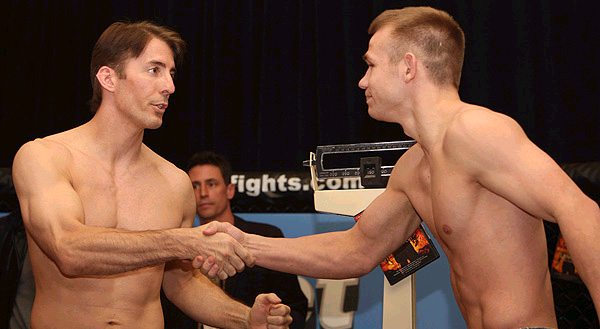
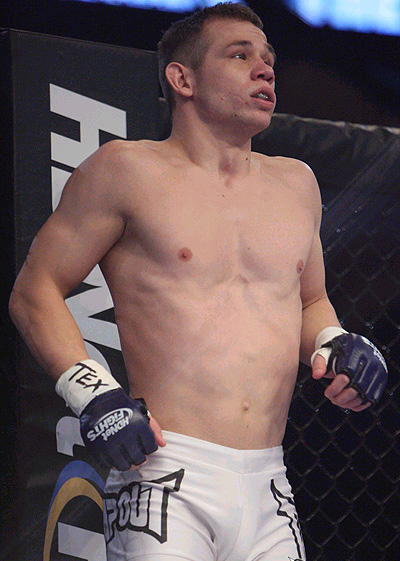
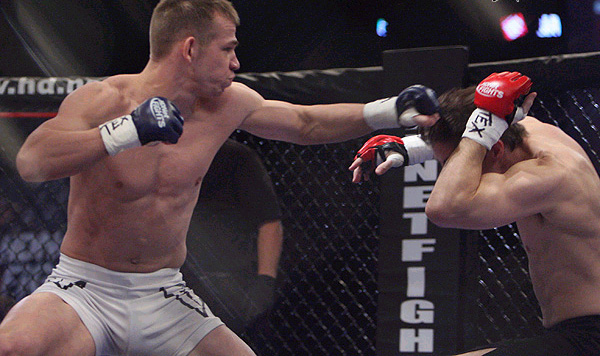
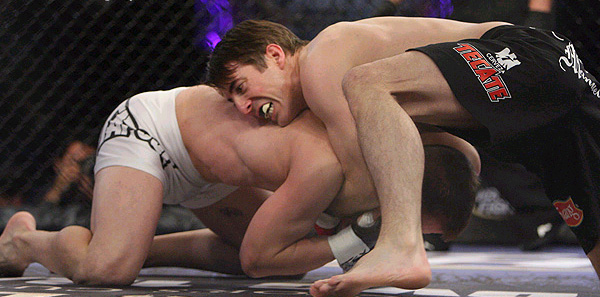
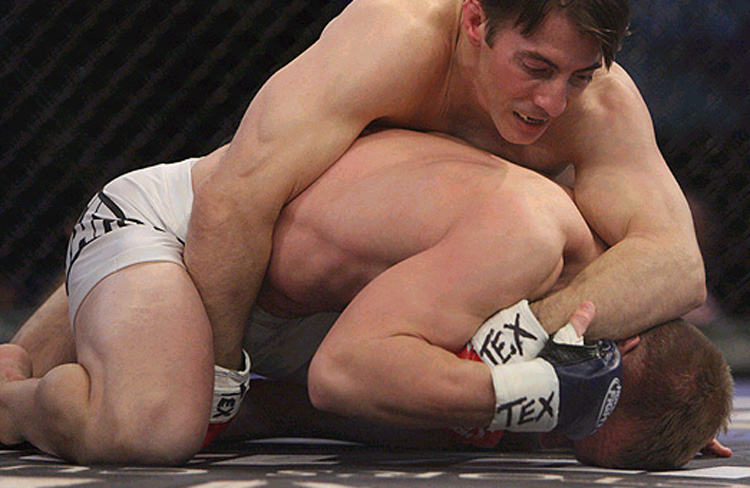
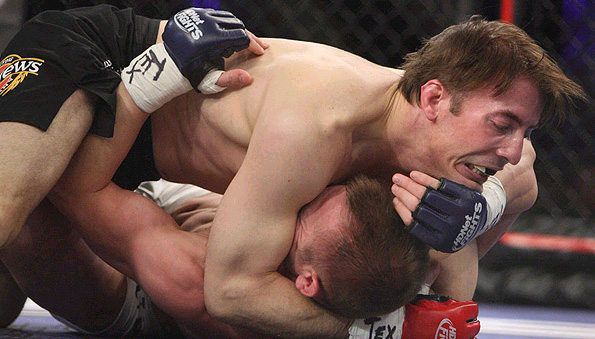
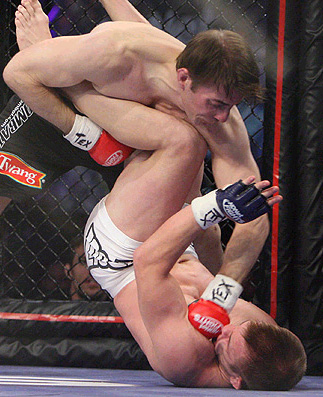
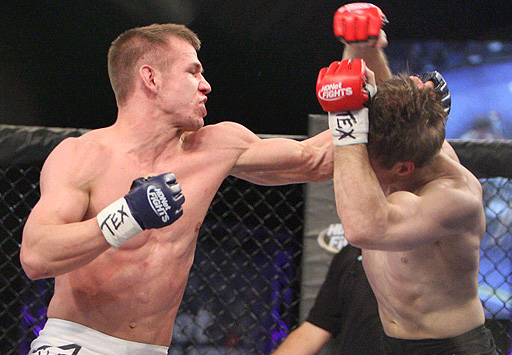
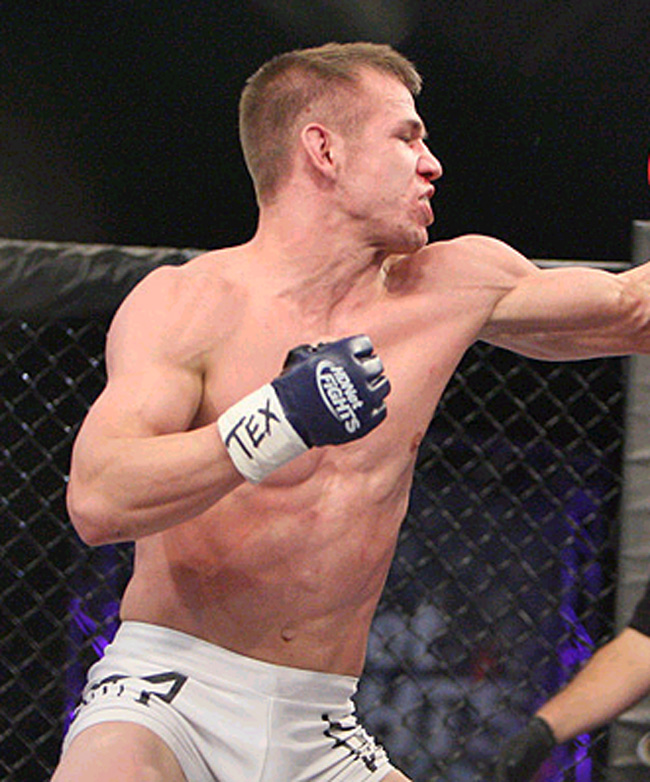
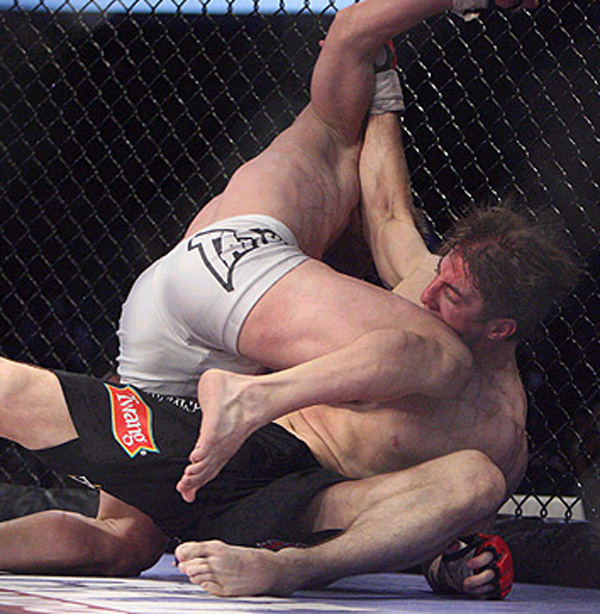
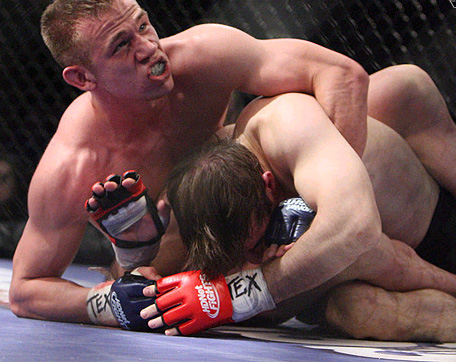
Anyone can learn to use his body effectively as a fighter.
Now, you're probably thinking, Bill, you're showing us pix of pro fighters -- what do you mean anyone can do it?
Well, look at this pic again:

Anyone can learn to do this.
It's not complicated.
It's not rocket science.
And I say that as someone who loves Fighting and Fighters.
Anyone can learn to do it.
Anyone can learn to pull back their arm and torque their torso.
Of course it helps to practice the move thousands upon thousands of times.
But the first step -- and a HUGE part of it is --
the Willingness to Learn.
The Willingness to FIGHT.
That's why NW says
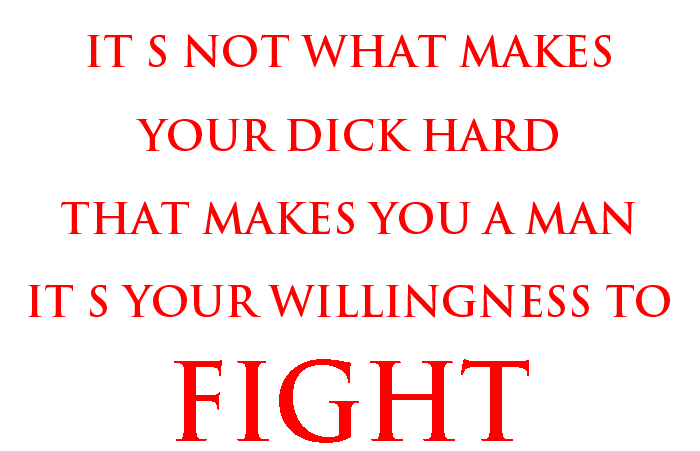
And he's right:



Anyone can learn to use his body effectively as a fighter.
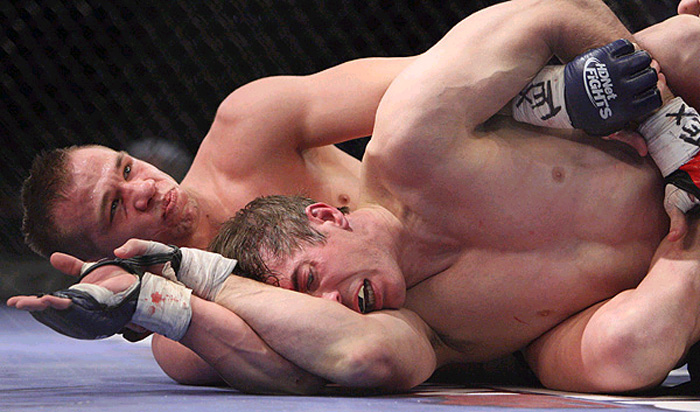
Redd:
Just think what would have happened to a boy who after a fight had his buddy throw his arm around the fighter's shoulders and congratulate the fighter's efforts?
Answer: That boy will swell with Masculine pride.
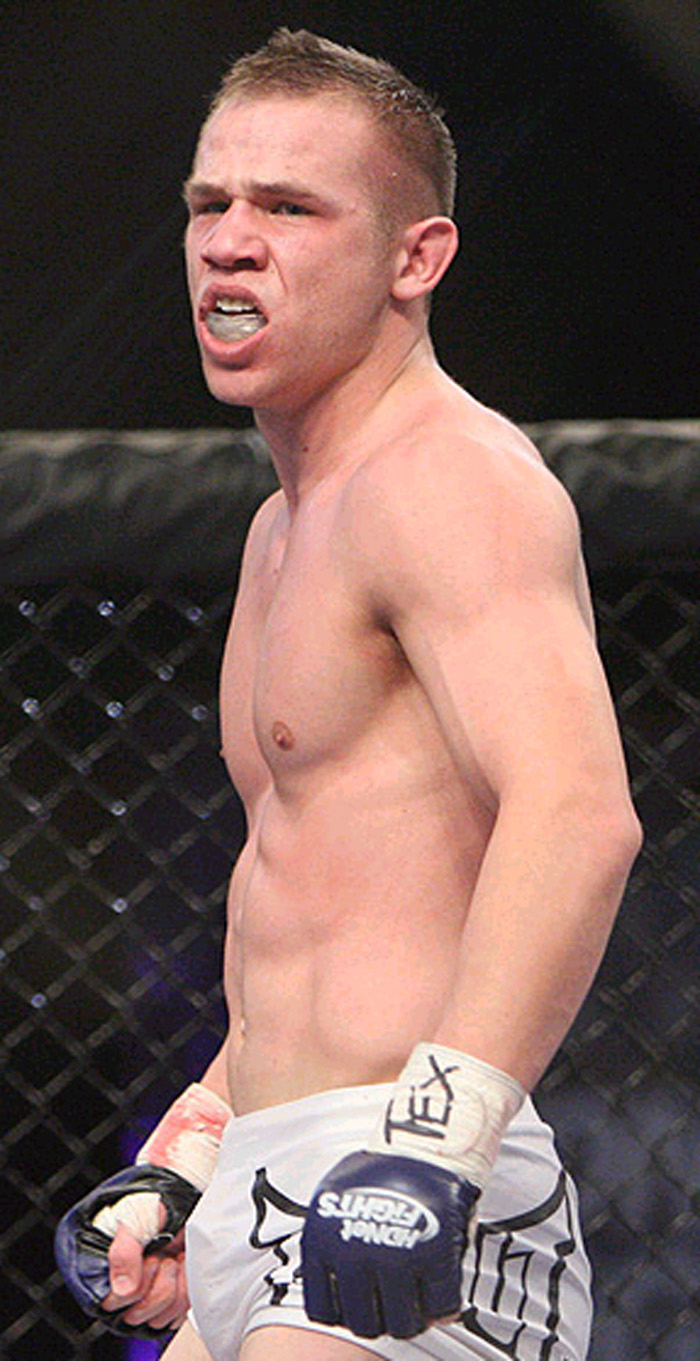
Now -- let's look at the Greeks in that regard.
The Greeks not only encouraged Boys and Men to Fight -- but they celebrated those Boys and Men in some of their most powerful works of art.
Specifically, the Odes of Pindar -- which are considered among the greatest of the world's poetry.
On the whole, only fragments of Greek lyric poetry have survived.
But in the case of Pindar, who lived ca 518 to 438 BC, we have four books -- albeit slender -- of "epinikia" -- Victory Songs.
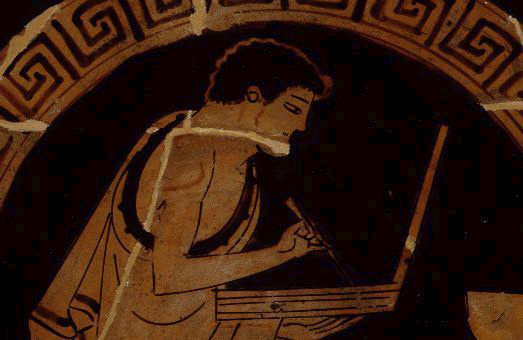
Epi-niki-a is the plural, singular is Epi-niki-on.
The "niki" in the word is from Nike -- the goddess of victory.
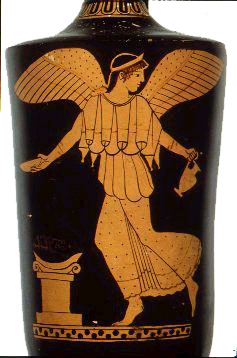
And these marvellously rich and complex poems were written to be sung aloud -- thus Victory Songs -- in celebration of an individual's victory in one or more of the four principal religious-athletic festivals -- the Olympic, the Pythian, the Nemean, and the Isthmean.
So they were music, which was performed publically, either by a soloist or by a chorus, accompanied by flute and lyre, and perhaps danced to as well.
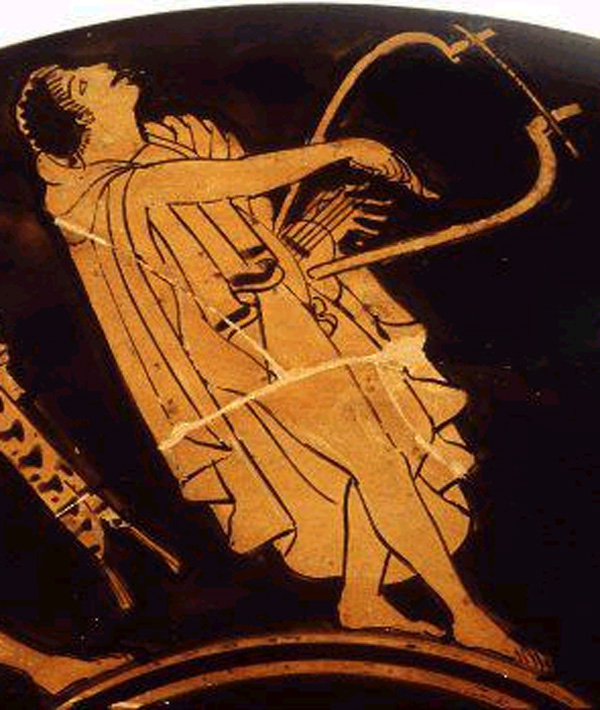
Now: many of the songs were written for the winners in Pankration, Boxing, and Wrestling.
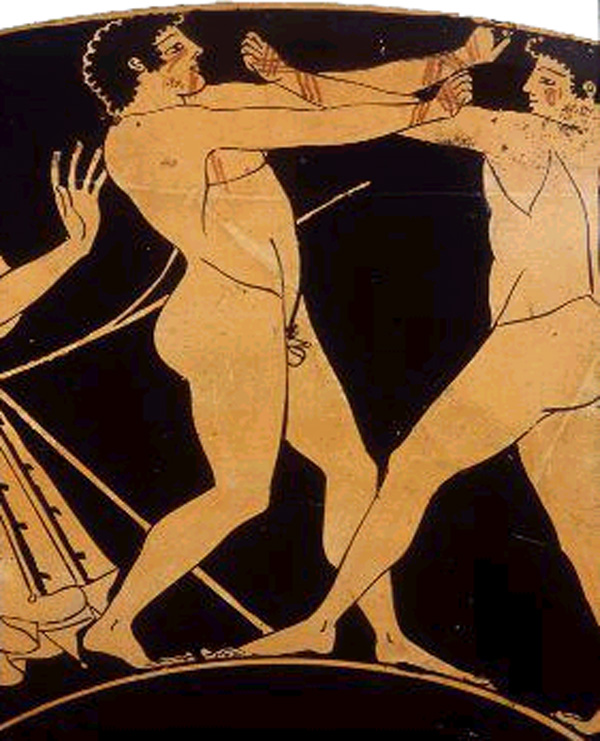
And many of those victors were boys -- or youths.
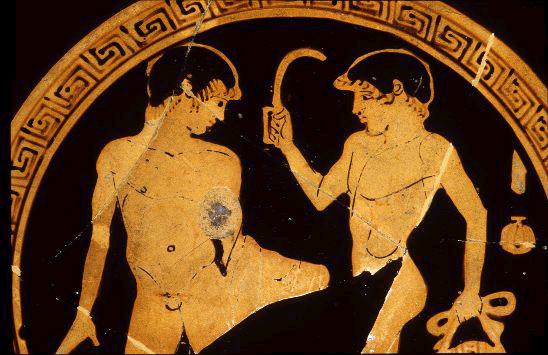
For example, the epinikion or ode or victory song known to scholars as "Nemean Two" is titled
For Timodemos of Acharnai, Winner, Pancratium
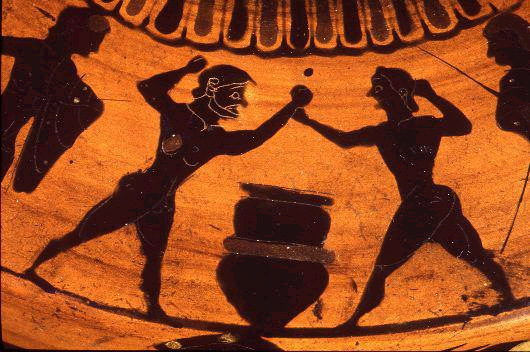
Nemean Three is titled
For Aristokleidas of Aigina, Winner, Pancratium
Nemean Four is titled
For Timasarchos of Aigina, Winner, Boys' Wrestling
Nemean Five is titled
For Pytheas of Aigina, Winner, Youths' Pancratium
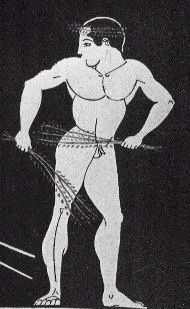
And Nemean Six is titled
For Alkimidas of Aigina, Winner, Boys' Wrestling
While Neman Seven is titled
For Sogenes of Aigina, Winner, Boy's Pentathlon
Pentathlon of course included wrestling.
Nemean Seven is considered one of the most important of Pindar's works, and as one editor says, "What is remarkable is that such a long, complex, and often beautiful poem should have been written for a boy athlete."
But of course to the Greeks, that wasn't remarkable.
Because boys who fought -- were worthy.
The poems are very complex, and not easy to translate or reproduce, but they celebrate the victors in mythical terms.
As well as in terms of beauty.
Here's the beginning of Nemean Five, for Pytheas of Aigina, Winner, Youths' Pancratium
I am not a sculptor, so as to fashion stationary
statues that stand on their same base.Rather, on board every ship
and in every boat, sweet song,
go forth from Aigina and spread the news that
Lampon's mighty son Pytheas
has won the crown for the pancratium in Nemea's games,
not yet showing on his cheeks late summer,
the mother of the grape's soft bloom.
Wouldn't it have been great for a kid to be called "Lampon's mighty son Pytheas" and have his Fight Victory celebrated by the greatest poet in Greece?
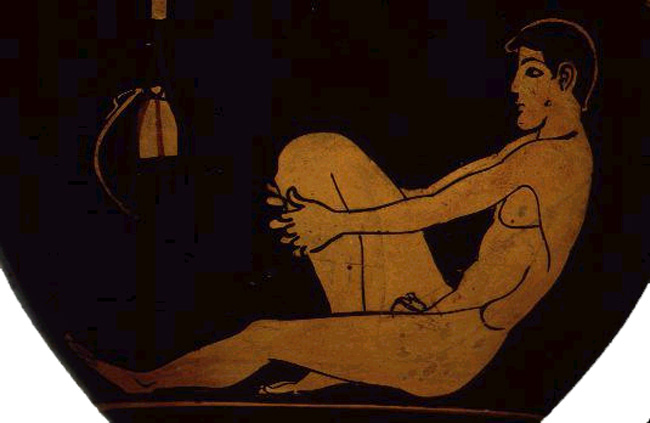
Okay, you might say, but this is Pindar, one of the most famous Greek poets not just of our time but of his time, and these are just a few individuals he celebrates.
To which I respond, That's correct.
But he wasn't the only one writing these "odes" -- these Victory songs.
There were other poets.
And there were many victors to be celebrated.
First of all, those four major religious-athletic events I mentioned, which were known as "crown games" because the victor received a "crown" or wreath of olive, laurel, pine, or parsley leaves, were timed in such a way as to make it possible for guys to compete as often as they could.
For example, notes William Race in the Loeb edition of Pindar,
The 76th Olympiad would have included the following crown games:
476 [BC], Olympic (August);
475, Nemean (July);
474, Isthmean (April), Pythian (August);
473, Nemean (July);
472, Isthmean, (April).The 77th Olympiad then began in August 472.
So: between 476 and 472, there were six crown games -- six opportunities to compete and to win.
(How do we know, by the way, that the 76th Olympiad took place in 476?
Because the first Olympic Games were held in, and the first Olympiad dated from, 776.
Do the math -- there are 300 years and 75 Olympiads separating 776 from 476.)
So -- the major, pan-Hellenic, festivals offered many opportunities.
But in addition there were literally dozens of local festivals.
Would the victors in the local festivals have been celebrated in Victory Songs?
Sure.
Maybe not by someone as famous as Pindar -- more likely by local talent.
But celebrated they would have been.
So you can see that not only did the Greeks encourage Males to Fight -- but that the Boys, Youths, and Men who competed were celebrated literally in poetry and in song.
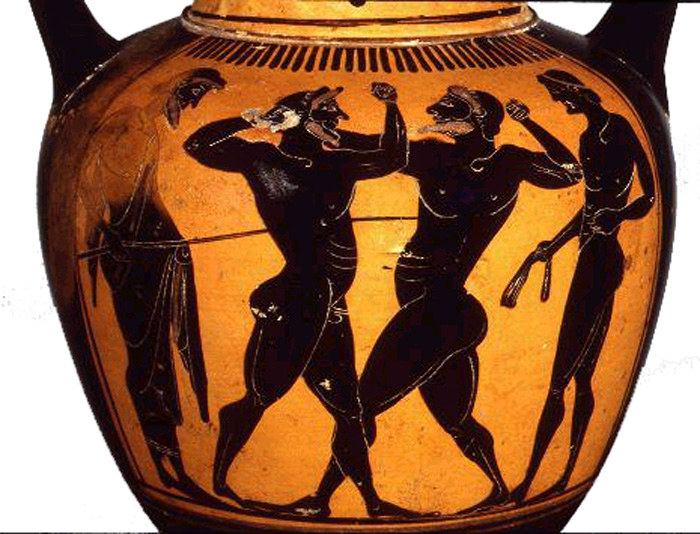
Oh, and before I forget -- these epinikia, these Victory Songs, were also considered hymns -- because they had a considerable mythological and therefore religious content.
Once again, this is a question of *mythic identification* -- which we've talked about in The Warrior Bond and in The Deification of Antinous.
It's also a question, as Redd well understands, of how you raise kids, and what role models you present to them.
Here's a picture, a wall-painting, which was preserved in the ruins of Pompeii:
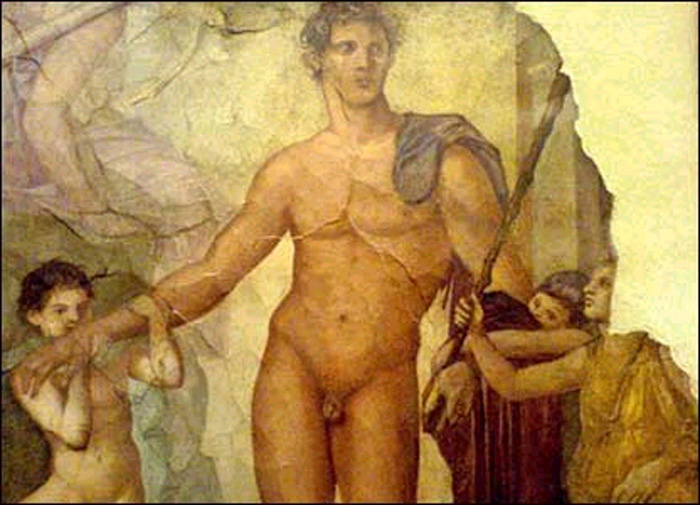
It shows the hero Theseus, who's just killed the Minotaur, surrounded by grateful and admiring children -- children who would have been killed and eaten by the Minotaur had Theseus not intervened.
You can see how the boy on the left is admiring Theseus' strong arm.

We can well imagine that the victors in the games -- the victors in wrestling, boxing, and pankration -- were admired in the same way.
For their Masculine force -- and skill.
The message was clear -- to quote Redd: ALL MEN AND BOYS CAN FIGHT.
And their fighting can and should be CELEBRATED.
Not denigrated and not dismissed.
But CELEBRATED.
This is what was lost when the ancient world was destroyed.
And not just the celebration of physical prowess.
But of moral prowess as well.
Some of you may remember Plato's description of a young man at the palestra:
"not less worthy of praise for his goodness than for his beauty"
Here's Pindar celebrating, in "Olympian Eight," the victory of Alkimedon of Aigina in Boys' Wrestling -- in 460 BC:
To different men come different
blessings, and many are the paths
to god-given success.Timosthenes [the victor's brother], destiny allotted your family
to Zeus, its progenitor, who made you famous at Nemea,
but by the hill of Kronos made Alkimedon
an Olympic victor.He was beautiful to behold, in action he did not discredit
his looks, and by winning in the wrestling match
he proclaimed long-oared Aigina as his fatherland,
where Themis, the saving goddess
enthroned beside Zeus, respecter of strangers, is
venerated most among men...
So Pindar says that Alkimedon, a boy, was beautiful to behold, and in action did not discredit his looks -- a linking of physical beauty with moral beauty.
His Fighting is seen as a moral act and linked to morality.
There are passages like this throughout the Odes, and they're wonderful to read.
Here's one more:
Nemean Three For Aristokleidas of Aigina, Winner, Pancratium
...It will be a joyous task to glorify
the lands where the Myrmidons of old
dwelled, whose long-famed assembly place
Aristokleidas did not stain with dishonor,
thanks to your favor, by weakening in the mighty
course of the pancratium.And for his fatiguing blows
in Nemea's deep plain he earns as a healing remedy this victory song.If, being fair, and performing deeds to match his form,
the son of Aristophanes has embarked on utmost
deeds of manhood, it is no easy task to go yet further
across the untracked sea beyond the pillars of Herakles,
which that god-hero established as famed witnesses
of his furthermost voyage....
Zeus, yours is the blood, and yours the contest, which
this hymn has struck
with young men's voices as it celebrates this land's joy.
Loud acclaim is in order for victorious Aristokleidas,
who has linked this island to glorious praise
and the hallowed delegation of the Pythian god
to splendid ambitions.But in the test the result
shines clear, in what ways someone proves superior,
as a child among young children, man among men, and thirdly
among elders -- such is each stage that our human race
attains. Then too, our mortal life drives a team of
four virtues, and it bids us heed what is at hand.
Of these you have no lack. Farewell friend. I send you
this mixture of honey with white
milk, which the stirred foam crowns,
a drink of song accompanied by the Aeolian breaths of pipes,
late though it be....
So: here Pindar praises a man, Aristokleidas, who has won in "the mighty course of the pancratium"; and, "being fair, and performing deeds to match his form, has embarked on utmost deeds of manhood."
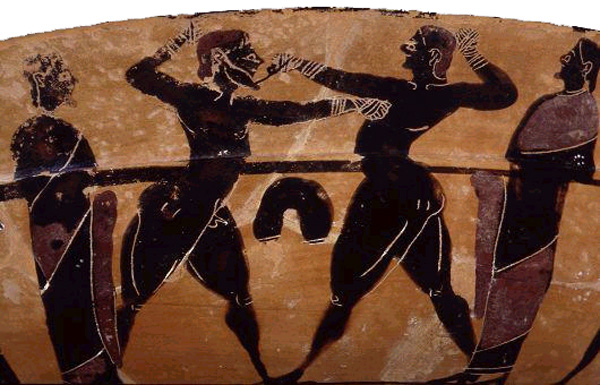
Aristokleidas is fair -- handsome -- and performs deeds to match his form, utmost deeds of manhood.
So again, as we saw with Statius, there's an explicit connection made between Fighting -- nude fighting -- and Manhood --
which is Virtuous.
I know you may not get it, but it's the same idea as his valour plain to see:
Aristokleidas, "performing deeds to match his form, has embarked on utmost deeds of manhood."
His form, like that of Parthenopaeus in the Thebaid, is that of a handsome, strong, nude Man.
Proud of and comfortable in his Masculinity, his Manliness, his Manhood.
And his utmost deeds of Manhood are, in this case, fighting a succession of other nude, strong, Masculine Men, fighting to victory in the Pankration, the most strenuous of all the Olympic contests.
Thus his deeds "match his form" -- they are "utmost deeds of manhood."
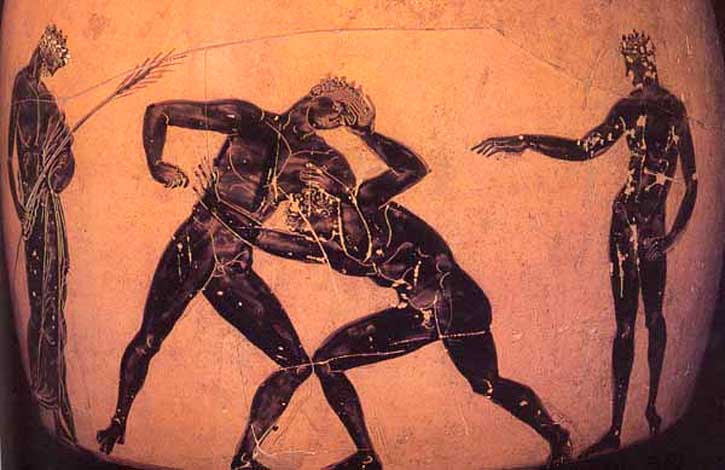
Vir -- Virilis -- Virtus
Man -- Manliness -- Virtue.
Virtue and Valour reside in Manhood.
Pindar then speaks of the three ages of Man, which we saw portrayed in this vase-painting,
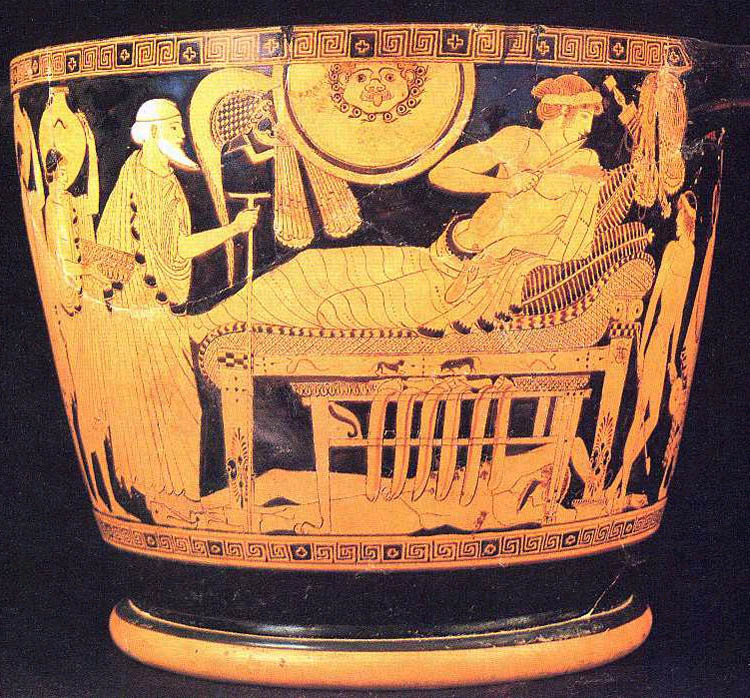
speaks of excellence attained in each of those ages, and says that Aristokleidas possesses the four virtues -- which are wisdom, self-control, courage, and justice.
The four Virtues -- once again, Vir, Virilis, Virtus.
So the Pankratiast is praised as Moral.
These activities -- these Fight Sports -- are seen to be an expression of the Man's Virtue -- of his excellence as a Man.
And this cannot be overstated.
As one authority has said,
The Games gave birth to yet another Greek idea, a whole attitude to life -- the attitude of a free man competing with his peers, naked, unfettered by any element foreign to his own body, conforming only to the rules of the game, with the sole aim of winning for himself an olive crown -- in other words a purely moral victory -- and the praise of his fellow men.
~ Andronikos, The Greek Museums, 186

Think about it:
- A Free Man
- Competing with his peers
- Naked -- unfettered by any element foreign to his own body
- Conforming only to the rules of the game
- With the sole aim of winning
- A purely Moral Victory
- And the praise of his fellow Men.


It's to that ethos, that Manly Ethos of Free Men --
who Fight each other Nude, unfettered by any element foreign to their bodies --
with the sole aim of Winning a Moral Victory and the Praise of their Fellow Men --
that Pindar gives voice in his Victory Songs.
He sings of Pytheas:
I am not a sculptor, so as to fashion stationary
statues that stand on their same base.Rather, on board every ship
and in every boat, sweet song,
go forth from Aigina and spread the news that
Lampon's mighty son Pytheas
has won the crown for the pancratium in Nemea's games,
not yet showing on his cheeks late summer,
the mother of the grape's soft bloom.
And of Alkimedon:
He was beautiful to behold, in action he did not discredit
his looks, and by winning in the wrestling match
he proclaimed long-oared Aigina as his fatherland,
where Themis, the saving goddess
enthroned beside Zeus, respecter of strangers, is
venerated most among men...
And of Aristokleidas:
If, being fair, and performing deeds to match his form,
the son of Aristophanes has embarked on utmost
deeds of manhood, it is no easy task to go yet further
across the untracked sea beyond the pillars of Herakles,
which that god-hero established as famed witnesses
of his furthermost voyage....
Zeus, yours is the blood, and yours the contest, which
this hymn has struck
with young men's voices as it celebrates this land's joy.
Loud acclaim is in order for victorious Aristokleidas,
who has linked this island to glorious praise
and the hallowed delegation of the Pythian god
to splendid ambitions.
And of all the boys, youths, and men like them.
Of all those who, in their moral life, strive to drive a team of four virtues:
Courage, Wisdom, Justice, and Self-knowledge.
Now, most people today know that during the Olympic games, which were the most important of the various religious-athletic festivals, there was a truce proclaimed throughout all the Greek lands, whether on mainland Greece, or in Ionia -- in Asia Minor -- or in Sicily or Africa.
Here once again is Andronikos:
The celebration [of the games] demanded that all Greeks be present in peaceful assembly in the sacred grove [at Olympia]. For this purpose the spondophoroi, noblemen of Elis, followed by an offical retinue, acted as heralds travelling to all the Greek cities well ahead of the games, in order to proclaim the "ekecheiria," i.e., a truce, a suspension of hostilities that would last up to three months.
Thus all the Greeks could proceed without fear to Olympia, and attend the most splendid Panhellenic assembly, where they could not only admire youths excelling in athletic games, but also single out famous noblemen and illustrious sages, listen to poets and musicians, and above all mingle among themselves: the Dorians of Sicily with the Ionians of the east, the Greeks of Kyrene with their distant brothers from Macedonia.
All this took place under the gaze and protection of the great Zeus, a warrior himself, who always stood by the Hellenes, whether in the struggles of war or in the peaceful contests of athleticism.
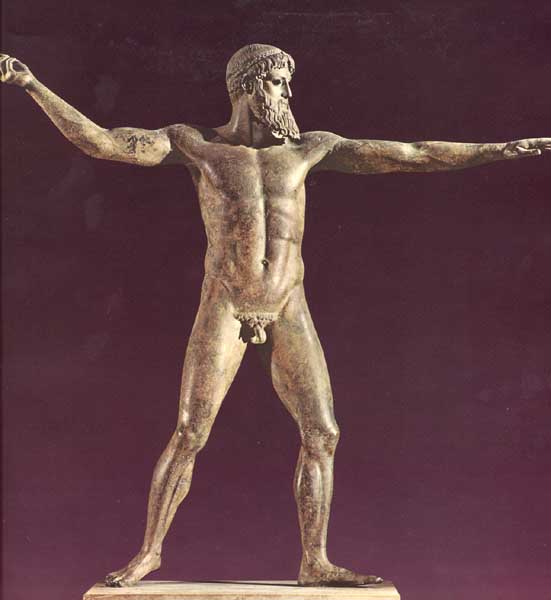
So the games -- in which free men compete with their peers, naked, unfettered by any element foreign to their bodies, conforming only to the rules of the game, with the sole aim of winning an olive crown, that is, a purely moral victory -- are sanctioned and overseen by the gods themselves, and in particular Zeus, the chief and most mighty of the gods.
And in this vase painting --
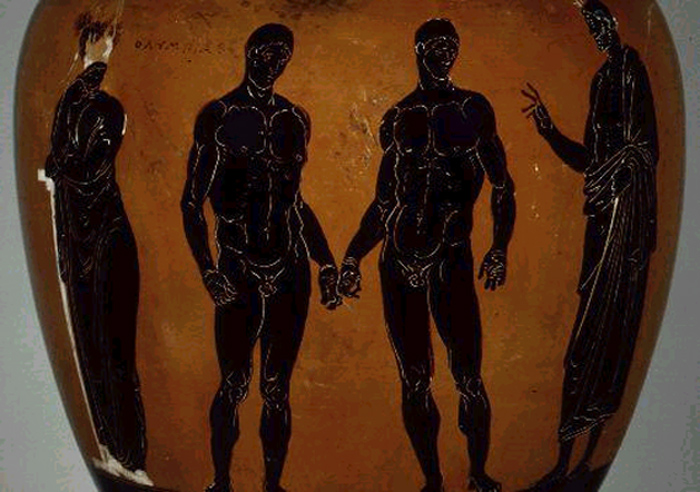
we see all the elements:
Two Free Men;
nude and unfettered;
conforming only to the rules of the game -- as given them and overseen by the referee;
seeking, in the presence of the gods and their fellow Men -- a purely moral victory.
In this vase painting, the woman on the left is the goddess Olympias, personification of the Olympic games:

Which, again, were dedicated to Zeus.
Now, this painting represents an event at the Panathenaic Games, which were preliminary to the Olympic Games.
So Olympias is watching to see if these Men will be worthy of fighting --fighting in honor of Zeus -- in the Olympic Games themselves.
Thus the gods sanction and make holy by their presence the Agon -- one man's strenuous physical struggle to overcome another.
Which has at its core a MORAL purpose:
a free man competing with his peers, naked, unfettered by any element foreign to his own body, conforming only to the rules of the game, with the sole aim of winning for himself an olive crown -- in other words a purely moral victory -- and the praise of his fellow men
"the praise of his fellow men"
Remember that I said that every boy and man seeks a Band of Brothers, a Band of Heroes, a Sacred Band.
Why?
Because the Masculinity of Men flows from their group, their homosocial group.
Men need the company of other Men --
while seeking, nude and unfettered by any element foreign to their bodies -- a moral victory.
And with it -- a Moral, Male, Intimacy.
Plato: The young Wrestler at the palestra is "not less worthy of praise for his goodness than for his beauty"
Pindar: The Warrior "performs deeds to match his form," "utmost deeds of Manhood."
It is those utmost deeds of Manhood which makes the Warrior worthy -- of his Warrior brother.
And without his Warrior brother -- his life is not complete.
It is, rather, cold, and empty.
I said that the first Olympiad was celebrated in 776 BC.
The Spartan Eunomia -- and with it the Agogé -- was instituted in 676 BC.
That world -- of Olympiads and Nemean Games, of Palestrae and Warriors and Nude Combat, of tall, cool temples and immortal gods -- lasted for more than a thousand years.
It was a world in which Man was the measure.
And then it was destroyed.
From without by the barbarians.
And from within by the Christians.
Constantine had his Christian "vision" at the Mulvian bridge in 312 AD -- that's when he converted to Christianity.
By 324 he'd issued an edict of "toleration" for the Christians -- and
they moved in for the kill.
Under first Constantine and then his successor Constantius, Christians seized control of the machinery of the state and started working
to destroy all other religions and ways of life.
A man known to history as Julian the Apostate -- a nephew of Constantine's -- succeeded to the principate in 361 AD.
Julian was a philosopher, a gifted writer, and a Hellenist -- who believed in Man and attempted to restore the worship of the gods.
Not through banning Christianity or persecuting Christians.
But by declaring tolerance for ALL religions.
Two years later, while on campaign in Persia, he was murdered -- by the Christians.
After that, there was no one left willing or able to stand between the Church -- the "communion of saints" -- and complete power.
It was the Emperor Theodosius I, who was Catholic (rather than an adherent of the Arian "heresy"), who -- urged on by the "Church Father" Ambrose -- effectively destroyed the worship of the gods.
And, not surprisingly, the Catholic Encyclopedia adores Theodosius -- saying that he "stamped out the last vestiges of paganism, put an end to the Arian heresy in the empire ... and reigned as a just and mighty Catholic emperor."
During all his reign Theodosius [,advised by St Ambrose,] took severe measures against the surviving remnants of paganism. In 388 a prefect was sent around Egypt, Syria, and Asia Minor for the purpose of destroying temples and breaking up pagan associations; it was then that the Serapeum at Alexandria was destroyed (Socr., V, 16). Libanius wrote a "Lamentation" about the destruction of the fanes of the gods (peri ton leron, ed. R. Foerster, Bibl. Script. Gr. et Rom. Teubner). In 391 Theodosius refused to allow the Altar of Victory to be restored in the Roman Senate (cf. Gibbon, "Decline and Fall", xxviii). Pagan sacrifices, omens, and witchcraft were to be punished as loesa majestas (Cod. Theod., XVI, X, 10-12). In short his laws put an end finally to the old cult, at any rate as far as open and public use is concerned.
Theodosius came to power in 378 AD.
By 382, paganism, so-called, had been "disestablished" -- throughout the Empire.
Let's be clear, by the way, that there was no such thing as "paganism."
What there was, rather, was a large number of different rites, cults, and mystery religions -- all, except for Christianity -- existing peacefully with one another.
From the point of view of a Hellenist like Julian, each rite, cult, and mystery religion was valuable.
Each answered to a specific psychological and spiritual need of humanity.
And each was designed, ultimately, to lead human beings to the worship of that one God from whom all life emanated and to whom all life must return.
In addition, there was philosophy, which in Julian's time was dominated by neo-Platonists, but again, they didn't control the debate -- there were Cynics and Stoics and Sophists and Epicureans and Pythagoreans too.
In short, there were many paths open to those wishing to know God and acquire Wisdom.
That was the "pagan" point of view.
To the Hellenist, it was the best of all possible worlds -- because it was tolerant.
Pagans were more than willing to tolerate all religions -- including Christianity.
But Christianity insisted that it had an exclusive lock on the Truth -- without which all Men and gods, including the great and saintly figures of the pagan past -- both human like Homer and Plato, and divine like Asklepios, who was widely worshipped as a healer and savior -- were doomed to eternal damnation.
And in 391, all pagan worship was effectively banned.
In the meantime, mobs of monks, supported by their bishops, started running wild -- destroying anything non-Christian.
In 388, under that "just and mighty Catholic emperor," they destroyed the synagogue at Callinicum.
In 392 the temple of Serapis -- the Serapeum -- at Alexandria --
considered one of the greatest buildings of the ancient world.
In 415 they lynched Hypatia, also at Alexandria, a pagan female
scholar and educator, flaying her and then burning her alive.
That's Christianity in action -- and the grisly murder of Hypatia proved to be very effective.
415 is often considered the end of paganism.
Because the killing of Hypatia and the constant threat of Christian terrorism, supported and sanctioned by the government, along with all the anti-pagan laws, had a chilling effect upon urban pagans -- they became understandably afraid to celebrate the old rites.
There were people in the countryside, farther from the reach of the government, who continued offering sacrifice to the gods and otherwise living a pagan life till the 6th century.
But 415 was about it for the cities.
And the Games, of whose victors Pindar had sung?
Those games, in which "a free man competed with his peers, naked, unfettered by any element foreign to his own body, conforming only to the rules of the game, with the sole aim of winning for himself an olive crown -- a purely moral victory -- and the praise of his fellow men"?
They were abolished in 393 AD.
On the grounds that they contained pagan rites.
Which is true.
But it wasn't only that.
In an email to me, NW commented
The guys who fight tell me that they get really really horny after fights. I've heard it from a few of them. My roommate tells me simply that it makes him feel "really really good after a fight."
There's something super sexual about sweaty, bloody skin-on-skin contact in a fight against an unknown opponent, under super hot spotlights, in front of thousands of fans.
MAN2MAN makes you a Total Man
Right.
"MAN2MAN makes you a Total Man."
That was not something the Church favored.
To the contrary.
Here's an image from Pella, home to the kings of Macedonia.
Why is this image of two nude men killing a stag intact?
Because it was buried.
Here's another image:
It's missing its penis.
Why?
Because the Christian mobs saw these statues as devils and demons -- and castrated them to destroy their power.
Sound bizarre?
Remember that the Taliban destroyed ancient statues of the Buddha not long before 9/11.
That's Muslim fanaticism.
Here's Christian fanaticism:
In 388 a prefect was sent around Egypt, Syria, and Asia Minor for the purpose of destroying temples and breaking up pagan associations; it was then that the Serapeum at Alexandria was destroyed (Socr., V, 16).
The way those prefects operated was to get the bishops or heads of the monastic orders to stir up the monks -- who didn't require a lot of stirring.
And let it be known that they could destroy the temples -- and their statues -- usually of great antiquity -- with impunity.
This is from the pagan philosopher Libanius, who witnessed the destruction, and who, speaking as a prominent public official from the important and ancient city of Antioch, complained of it in a letter to Theodosius:
Those black-garbed people [the monks], who eat more than elephants, and demand a large quantity of liquor from the people who send them drink for their chantings, but who hide their luxury by their pale artificial countenances,----these men, O Emperor, even whilst your law is in force, run to the temples, bringing with them wood, and stones, and iron, and when they have not these, hands and feet. Then ... the roofs are uncovered, walls are pulled down, images are carried off, and altars are overturned: the [pagan] priests all the while must be silent upon pain of death. When they have destroyed one temple they run to another, and a third, and trophies are erected upon trophies: which are all contrary to law. ... And there are many enemies every where. After innumerable mischiefs have been perpetrated, the scattered multitude unites and comes together, and they require of each other an account of what they have done; and he is ashamed who cannot tell of some great injury which he has been guilty of. They, therefore, spread themselves over the country like torrents, wasting the countries together with the temples: for wherever they demolish the temple of a country, at the same time the country itself is blinded, declines, and dies.
Libanius is telling the truth.
Here's an account by a Christian, Rufinus, of the destruction of the Serapeum, or Temple of Serapis in Alexandria, which included an offshoot of the famous Alexandrian Library.
Thus, as we have begun to relate, after the reading of the rescript, our people [the Christians] were ready to overthrow the Author of Error [Serapis -- and the Devil]. However, a belief had been spread abroad by the Gentiles themselves, that, if a human hand was laid violently on this statue, the earth would immediately open up, dissolving into chaos, and suddenly the heavens would collapse into the abyss. This story gave the people a senseless pause, when behold -- one of the soldiers, better protected by his faith than by his weapons, seizing a double-edged axe, stood up and with all his strength struck the jaw of the Old Man. A shout was raised by both groups of people, but neither the sky fell nor the earth sunk. Repeating his action several times, he cut off the worm-eaten genius of wood, blackened by smoke once it was cast down and thrown into the fire, and it burned as easily as dry wood. After which, the head was taken, having been torn away at the neck, with its modius broken. Then the feet and the other limbs were cut up in pieces by blows of the axe, quartered and dragged off with the aid of ropes. Then in each locale, member by member, the decrepit Old Man was burned under the eyes of his adoring Alexandria. Finally, the trunk which still remained was burned in the amphitheatre. Such was the end of the vain superstition and ancient error of Serapis.
...
And now, with the vestiges of idolatry destroyed and prostrate, in formerly profane buildings, golden roofs are raised. But after the fall of Serapis -- who had never lived -- could the sanctuaries of any other demon remain standing? It is too little to say that all of the shrines dedicated to some demon or other in Alexandria, were destroyed almost column by column. In every Egyptian town, fortified post, village, and the entire countryside, along the banks of the river and even in the desert, all of the sanctuaries -- or rather, all of the tombs -- which could be found were overthrown and razed, thanks to the zeal of each bishop, with the result that the land which had been unjustly assigned to demons was once again given over to cultivation.
So -- to the Christians, the statues of the gods were demons which had to be destroyed.
And if they could do nothing else, they went after the penis -- which they saw as the statue's source of power.
And they were thorough:
all of the shrines dedicated to some demon [god] or other in Alexandria, were destroyed almost column by column. In every Egyptian town, fortified post, village, and the entire countryside, along the banks of the river and even in the desert, all of the sanctuaries -- or rather, all of the tombs -- which could be found were overthrown and razed ...
What had taken a thousand years or more of patient human endeavor, piety, and faith to build up -- was swiftly undone.
Here's another pagan, Eunapius:
Men who had never heard of war boldly attacked stones and walls. They demolished the Serapeum! ... they made war on offerings. Courageously, they gave battle to the statues until they had vanquished and robbed them. Their military tactics consisted of stealing without being seen. As they could not carry away the pavement because of the weight of the stones that could hardly be moved, when they had simultaneously overturned everything in sight, these great and valiant warriors, whose hands though rapacious, were not stained with blood, declared that they had triumphed over the gods. They gloried in their sacrilege and impiety. In these 'sacred places 'monks' were installed, those creatures who resemble men but live like pigs.... In that period anyone who wore a black robe had despotic power! In the abode and in place of the gods, henceforward worship was rendered to the skeletons of a few wretched ex-convicts, slaves who deserved the whip: the 'martyrs'.
I think it's difficult, today, to convey the extent of the destruction.
But huge temple complexes, which had stood and been added to over a period of thousand years, were destroyed -- usually in just a couple of days.
I know that most of you have never heard of the Serapeum.
It was a temple to Serapis, a Greco-Egyptian god, but it was a lot more than that.
Here's the great Greco-Roman historian Ammianus Marcellinus, describing the Serapeum not long before its destruction:
[In Alexandria,] there are many temples with lofty roofs, chief among them the temple of Serapis [the Serapeum]. Its splendour is such that mere words can only do it an injustice, but its great halls of columns and its wealth of lifelike statues and other works of art make it, next to the Capitol [in Rome], which is the symbol of the eternity of immemorial Rome, the most magnificent building in the whole world. It contained two priceless libraries [of] 700,0000 volumes...
~ The History, 22.16, translated by Hamilton
Some portion of the libraries had been burned, accidently, by Julius Caesar; and then restored over the next three hundred years.
The libraries were finally wiped out by the Christian mobs.
Similarly, the Olympic complex at Olympia was extensive.
A shrine to Zeus had existed at Olympia since at least 1000 BC; it became the locus of the Sacred Games in 776 BC.
Here's a schematic of the complex:
There was a sacred precinct, the Altis, a rectangle more than 600 ft on each side, said to have been laid out by Zeus' son, Herakles, himself.
Within which were a number of temples, including the great temple to Zeus, considered one of the Seven Wonders of the Ancient World.
Here's an artist's reconstruction:
And here's another artist's imagining of the interior, which featured a statue of Zeus which was so large that it was said that if it stood up, it would bump its head on the ceiling:
There was also a temple to Hera within the Altis.
Also within the Altis was a temple to Pelops, the eponymous hero of the Peloponnese, a temple open to the sky with many statues and trees within.
It's worth noting that Zeus, honored with the greatest temple, was the lover of Ganymedes, while Pelops was the beloved of Poseidon -- and indeed, on the pediment of Zeus' temple was a frieze depicting a famous chariot race in which Poseidon helped Pelops win a bride.
So these reminders and role models of the Love of Man for Man were right within the sacred precinct -- the Altis, constructed by Herakles, who himself was the lover of Iolaos.
Just outside the Altis were twelve treasuries, containing the gifts of twelve cities to Olympia and Zeus.
There were also other temples, including one to the Great Mother, and another erected by Philip of Macedon, which included statues of Alexander the Great.
Then there was the Prytaneum, within the Altis, which contained a hearth with a perpetual fire and a banquet room for the feasting of Olympic victors.
There were colonnades, and at least sixteen statues of Zeus made with money from the fines imposed on athletes who'd violated the rules.
There was a Council House or Bouleuterion, outside of which stood a statue of Zeus Horkios (Zeus who presides over oaths) where athletes took their oath not to indulge in foul play during the games.
There was a hostel for distinguished guests; and of course a palestra for wrestlers, boxers, and pankratiasts, and a separate gymnasium, with a covered running track.
The stadium itself was just to the east of the Altis.
According to the Britannica, when in recent years the stadium embankments were excavated, many votive offerings (offerings made in fulfillment of a vow) were found, including a half life-size terra cotta group of Zeus and Ganymede dating from around 470 BC -- the same era as Pindar's Victory Songs.
And of course there was a hippodrome for horse racing.
And everywhere there were statues, paintings, and reliefs of the gods, heroes, and athletes.
Some of them the most famous in Greek art.
Let's look in that regard at the temple of Zeus, and its pediments and metopes.
Here's a schematic which shows the location of the pediments on the east and west face of the temple; and of the metopes, which were rectangular panels representing the Labors of Herakles:
And here's the east pediment, showing the beginning of the chariot race of Pelops against Oinomaos:
And here are bits and pieces of the surviving figures:
And here's the west pediment, showing the battle of the Lapiths against the Centaurs, known as the Centauromachy:
That pediment includes this incredibly powerful image of Apollo as he condemns the lawlessness of the Centaurs.
"The god," says Professor Andronikos, "has thrown back his himation over his right shoulder, leaving uncovered his divine body with its sturdy, austere structure and firm flesh."
And here it is in context:
The great temple of Zeus also had metopes, or panels, representing the Labors of Herakles.
And here are three of the surviving metopes:
In the first, Atlas presents Herakles with the golden apples of the Hesperides, while Herakles, assisted by his patron, the goddess Athena, holds up the world:
In this second metope, Herakles presents Athena, who sits casually and barefoot on a rock, with the bodies of monstrous birds, whom he has destroyed.
And in the third, Herakles captures the Bull of Knossos:
These images are among the most powerful in Greek art, fully equal to the poetry of Aeschylus and Pindar.
Yet what you must understand is that anywhere the visitor or athlete went in Olympia, he encountered such images, images of gods, goddesses, and Men, and particularly of course of nude gods and nude men, ranging from the grand, as in this statue of Hermes by Praxiteles, found buried in 1877, but which stood within the temple of Zeus itself
to the simple, as in this statuette of a young runner; the inscription on its thigh says, simply, "I belong to Zeus" -- and it dates from about 480 BC -- the age of Pindar.
And if we look again at Herakles and Bull of Knossos
you can see, even with the terrible damage, the emphasis on the genitals of both Herakles and the Bull.
The Contest is Male against Male, Manhood against Manhood, even when the Manhood -- is animal.
You can see that again in this vase painting of Herakles killing the Nemean Lion:
Men, Heroes, and Gods -- Temples, and Myth, and Nude Combat --
that was Olympia.
All was destroyed by the Christians -- in very little time.
Here are the remains of the palestra:
This is what remains of the Temple of Zeus:
Not much, huh?
Similarly, the great religious complex at Eleusis, where the mysteries of Life and Death had been celebrated for at least a thousand years, was destroyed:
Eleusis fell to a mob of fanatical monks, in 396, bringing to a close, at least a thousand years and probably many more, of Mystery celebrations which had deeply nourished Mediterranean culture. Its loss constituted a violent rupture for western culture. This ritual center near Athens had already been ransacked by Christians in the third century but had been rebuilt. This time it went underground, the area remaining sacred to local peasants.
These are immense acts of destruction, not just of sites of so-called pagan worship, but of a culture which had lasted for thousands of years.
For example, I noted that to Pindar, writing ca 500 BC, the four virtues were courage, self-knowledge, wisdom, and justice.
Almost nine hundred years later, Ammianus Marcellinus, in his panygeric for the fallen pagan hero Julian, writes that Julian exhibited the four virtues of courage, wisdom, self-knowledge, and justice.
Which there is no question he did.
That was destroyed.
A World defined by Men, and by Men whose virtues were courage, wisdom, self-knowledge, and justice, was destroyed, largely by mobs of monks, ascetics sworn to celibacy, who, acting under the protection of the newly Catholic Roman emperor, attacked Men and Masculinity by destroying the temples of the gods and the athletic precincts of Men.
And, once again, they attacked, burned, and hacked to bits the statues of both gods and men -- there was a temple to Apollo, for example, whose cult statue of Apollo was said to be as large as that of Zeus in Olympia; that temple, located in a suburb of Antioch, was burned and destroyed by the Christians in 362 AD.
And when the Christians could not, for whatever reason, totally destroy the statue, they at the least castrated it.
Which is why, when we find statues that are genitally intact, it's because they were buried -- to protect them from the barbarians within and without.
Castration.
State Christianity began the work of castrating Men.
And heterosexualization has finished it.
The Christian line on Hellenism by the way is that the Church took in and adapted the best of Hellenic thought.
Don't you believe it.
Christianity was in fact a radical departure from Hellenist thought and Hellenist practice.
Which is why the thousand years following 415 AD -- did NOT resemble the thousand years which preceded it.
Since the Renaissance, Europeans have been struggling to find their way back to the humane, Hellenist past.
And along comes heterosexualization.
Which seeks to destroy Man.
Now, only a tiny remnant of Men are left -- to fight those forces.
Plato:
The young Wrestler at the palestra is "not less worthy of praise for his goodness than for his beauty"
Pindar:
The Pankratiast, "performing deeds to match his form, has embarked on utmost deeds of manhood," and "drives a team of four virtues"
In Agogé Reply II I said that Homer sang of a pristine world of flesh and spirit.
This is Homer's account of the funeral of Patroclus:
They covered all the corpse under the locks of their hair, which they cut off
When these had come to the place Achilleus had spoken of to them
Now, since I do not return to the beloved land of my fathers,
He spoke, and laid his hair in the hands of his beloved
Accompanied by sacrifices, both animal and human, the body is burned.
And as
As dawn comes, the fire dies down and Achilles falls asleep.
He's awakened by Agamemnon, and Achilles asks his help in gathering up Patroclus' bones:
And let us lay his bones in a golden jar and a double
Achilles, nude before the assembled Greek army and naked before the body of his beloved friend, cuts a lock of hair, which he places in his beloved friend's hands.
He then stays with the body, in deep lamentation, as it burns.
And when the body is burnt and the bones gathered, Achilles looks forward to the day when he himself will enfold Patroclus in Hades.
This is a world of Warriors, pristine in flesh and spirit.
Pure.
Noble.
Natural.
And Heroic.
A World of Naked Valour.
A State of Natural Masculinity.
That's what's been taken from you.
Stolen from you.
What was yours by right of birth is no longer there.
Do you want it back?
Or do you want to go on living in the heterosexualized, Christianized, effeminized present?
What do you want?
AND WHAT WILL YOU DO TO GET IT?
Lawrence said that donations should be flowing in, Regional Chapters springing up everywhere.
They're not -- in either case.
What do you think's going to happen?
I'll tell you:
Absent YOUR action, things will get worse.
Most of you want a "private solution" -- you want to find a lover or frot bud.
But that's not going to solve anything -- no matter what you may think.
Because you will go on living in this culture.
And Men live in their culture the way fish live in the sea.
If the culture is TOXIC to Men -- it'll be TOXIC for you too.
There is NO WAY to escape that.
Your ONLY CHOICE is to LIVE as a MAN.
And that means to FIGHT BACK.
Because MEN FIGHT.
If you're not fighting -- you're not a man.
And if you're not a man -- what are you?
And in what is your life?
I titled this section "in service to a cold path."
The line is from yet another poem by Pindar.
This one's a lot easier guys -- I know the other ones were difficult, but don't skip this one -- it packs a real punch.
It's called "For Theoxenos of Tenedos."
And it's to be found in a book by Athenaeus, who asks, "And what does Pindar say when he mentions Theoxenos of Tenedos, who was his beloved?"
This is Pindar's answer:
One should cull love, my heart,
with a cold flame, and is dishonored
But I, because of Aphrodite, melt like the wax
"Persuasion and Grace dwell in the son of Hagesilas"
Has anyone ever said something like that about you?
If not, why not?
Look guys, what Pindar says, is that the male who doesn't respond to the Love of Man is one who has a black heart, forged with a cold flame;
who is dishonored by Aphrodite, the goddess of love; or,
who "toils compulsively for money," or with "womanly courage," "is carried in service to an utterly cold path."
"carried in service to an utterly cold path," according to Wm Race, editor of the Loeb Pindar, means "devoted exclusively to heterosexual love." (Pindar, Vol II, 353)
Let's repeat that: to be devoted exclusively to "heterosexual love," says Pindar, is to be carried in service to an utterly cold path.
Remember Allanbrook?
Isn't that what happened to him?
Didn't he turn away from Leonard, "with womanly courage," says Pindar, and was then carried -- for THE REST OF HIS LIFE -- in service to an utterly cold path.
A path of unrealized possibility, bitter loneliness, and infinite regret.
Go back and read it -- because those are his words.
Is that where you want to be for the rest of your life?
with womanly courage, in service to an utterly cold path?
Think about it.
I ask you again:
What do you want?
AND WHAT WILL YOU DO TO GET IT?
In an email, which I'll post separately as well, Redd said:
I've always thought that homophobia reflects society's fear of the masculine, particularly masculine beauty, because somewhere in our collective subconscious we recall ancient cultures where men occupied public domain.
In those socieities, men's expressing their masculinity was holistic. A holistic identity didn't separate beauty from fighting, for instance. The masculine wasn't secretive; its masculinity in all its glory was public.
I think we today subconsciously know of this past where the masculine was validated and at once strong, honorable and beautiful. And since men occupied public domain, it was men who acknowledged and accepted masculinity. Such acknowledgement affirmed the masculine; hence, men affirmed masculinity because they acknowledged it (they looked at it, talked with it, fought with it, competed with it, touched it, etc.).
Today, we force masculinity to be secretive, which indicates that masculinity today is not holistic because on the public stage men act heterosexism's script. And social pressure demands men indicate a "sexual preference." "Metrosexual" and "homosexual" indicate a preference. Requiring a preference usually means that those preferences have identifiers. How do you know if a person is a metrosexual, for instance? Well, it's in the clothes he wears, his manicured nails, his stylish hair, etc. Of course, preferences have nothing to do with determining masculinity and further denies wholeness.
What our society has succeeded in doing is getting men to codemn men. As men in ancient cultures affirmed masculinity, men today condemn it.
I think feminists and gays are mostly responsible for leading this condemnation of masculinity. Both emasculate men: feminists want to control men and want power; gays realize their power is in effeminacy; the more they act like women the less they threaten feminists. Even preference terms are gay-focused: metrosexual and straight means non-gay.
In some way, condemnation unveils and/or hides the value in the condemned.
"As men in ancient cultures affirmed masculinity, men today condemn it."
On this site and in this Alliance, we present images and writings from ancient culture to show you what life was like in a culture which affirmed masculinity.
Our culture condemns masculinity.
What will you do in your own life?
Affirm -- or condemn?
Will you spend your life in service to a cold path?
Or will you affirm your masculinity and the masculinity of Men, and thus make possible your own Epinikion --
Your own hymn to your own Manly Victory.
Bill Weintraub
January 15, 2008
© All material Copyright 2008 by Bill Weintraub. All rights reserved.
Re: AGOGE: The Spear-Points of Young Men Blossom There
1-23-2008
Julian underestimated the SOBs. He paid for that with his life. We all have paid for that. A Dark Age did indeed descend. Thanks for telling that truth that explains so much.
Christianity and secularism are at war with the natural world and are natural allies in that struggle. They play off each other, but they are both as violently opposed to phallus as the violent yahoo mobs who knew nothing of virilis, who attacked the hated representation of what they lacked. They've been attacking it, and those that have it ever since.
Feminism is only the latest development in that long, weakening process that was first brought about by "wretched ex-convicts, [and] slaves who deserved the whip," so while I do not agree with or like much of the claptrap that comes out of Women's Studies programs which love women who would be men, I also have little tolerance for dickless men who want to sit around all day complaining about "feminazis." They exist because of the weakness of men like themselves. Go to a fight school, seek to establish a bonded relationship with another man. Or sit around all day whining, or as Bill would say, "mewling and puking." That's the same ilk who attacked defenseless statue representatives of what was best about men. The men they would never dare to take on one on one in the flesh.
I can't stand Christianity, or the Root of So Many Lies.
My father is a devout Catholic. Would he, or Patrick be any less moral (to the extent they each are) were they to have been born to that ancient world you have so beautifully helped us glimpse. Absolutely not. They would have been better off. No one can shake this, my belief.
I loved this article most of all, of all that I have read because it speaks to something we have all experienced first hand: A world built on lies and hypocrisy. At least the Romans in their world of masters and slaves made no pretense of their love of power. It was open. That, at least, is honest, and natural, and therefore, not deplorable, unlike the Christian lies and liars.
Underestimating Christianity which speaks to the weakness and lowness of people, rather than the greatness and strength, can kill you, if not physically, then in my experience, spiritually. I didn't need to take acid as a teenager. I thought the world I was living in was "trippy" enough.
I like what many American Indians apparently believed: that this world is not ultimately knowable by man. It is a great Mystery. Doesn't science prove that one solved mystery just uncovers many others, in a series of neverending unknowns? I am comfortable with mystery. I like mystery. I don't want some sleazeball, or self-appointed holy man trying to explain what he does not know, and probably knows less of than someone who has no such fantasies or conceits. A dog has more of an understanding of divine truth than a man like Haggard, and so many others like him can ever hope to know.
Thanks for putting it out there. I know you have many devout Christian followers who can't see that this religion is ultimately at war with their manhood, as Nietzsche at least implies, if doesn't state (I've only read a little, years ago). So many of these still Christian men tell of the great harm that was done to them primarily as allowed and encouraged by the faith. Get a frickin' clue! May the Truth always reign.
I just want you to know that I'm grateful your writing exists, that you exist to write what no one else can or will. You are a mitzvah. Though, I don't thank Judaism much for this curse either.
With respect,
Frances
AND
is presented by The Man2Man Alliance, an organization of men into
Frot
Click here to read An Introduction to Frot and The Man2Man Alliance.
Click here to learn more about Heroic Homosex.
And here to learn more about Heroes.
Or here to visit our FAQs page and learn more about Frot Men.
© All material on this site Copyright 2001 - 2011 by Bill Weintraub. All rights reserved.

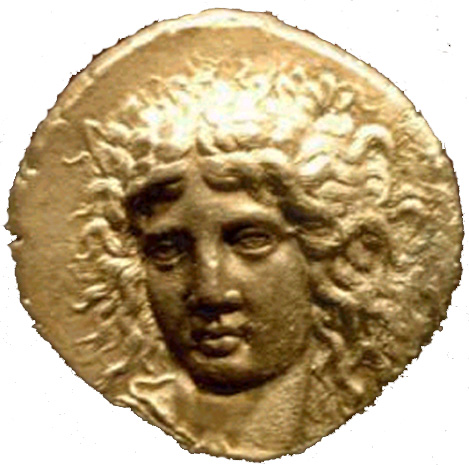
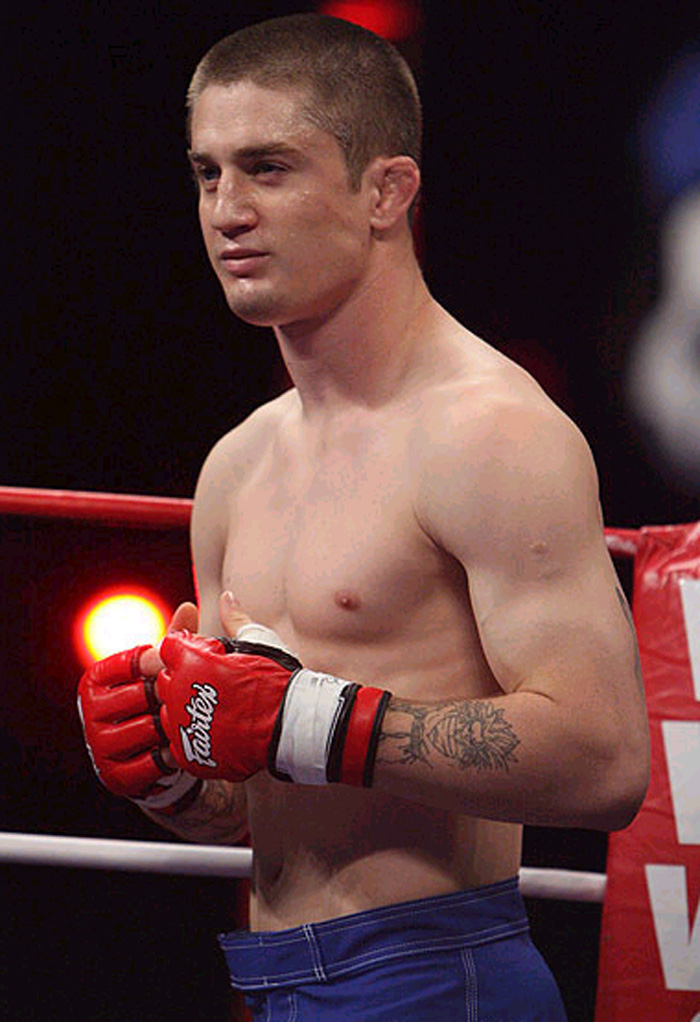
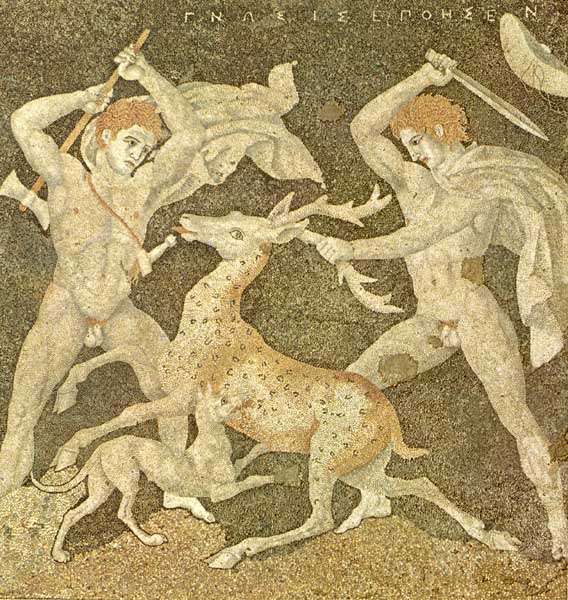
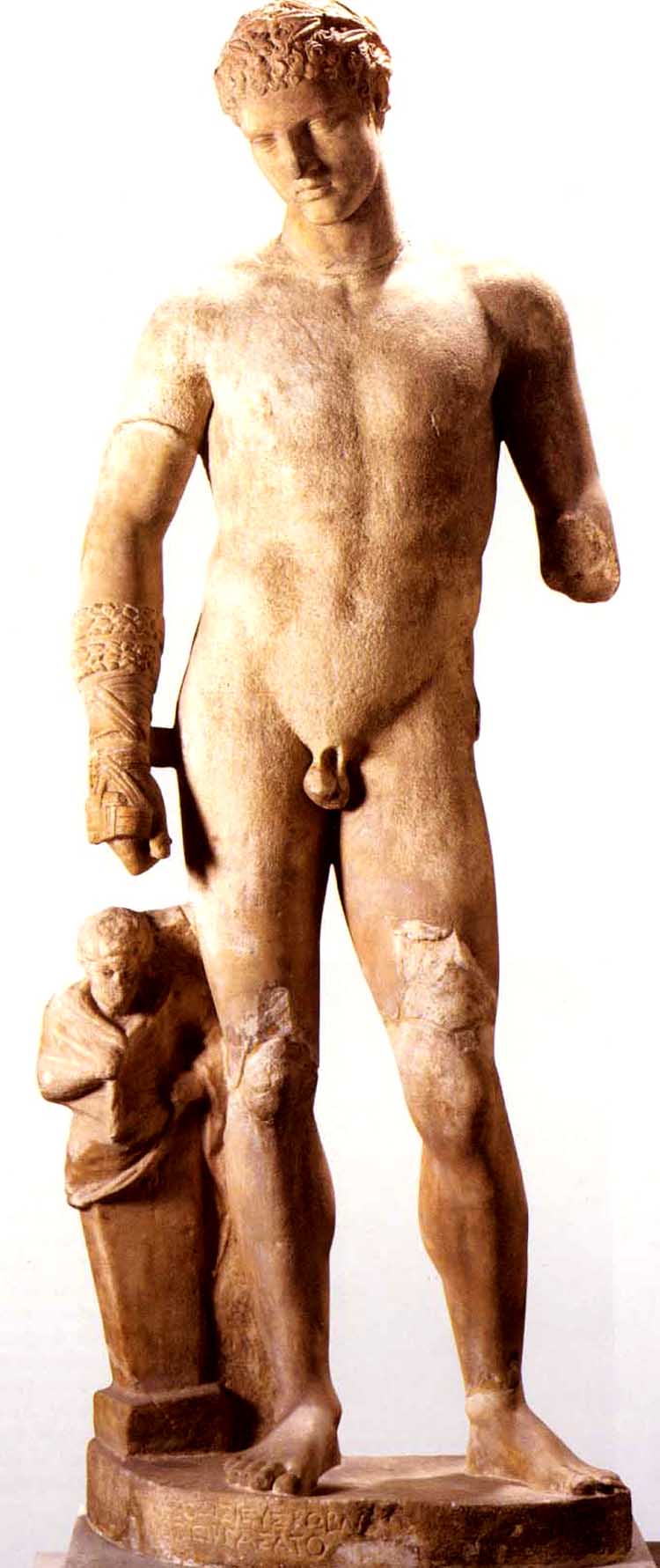
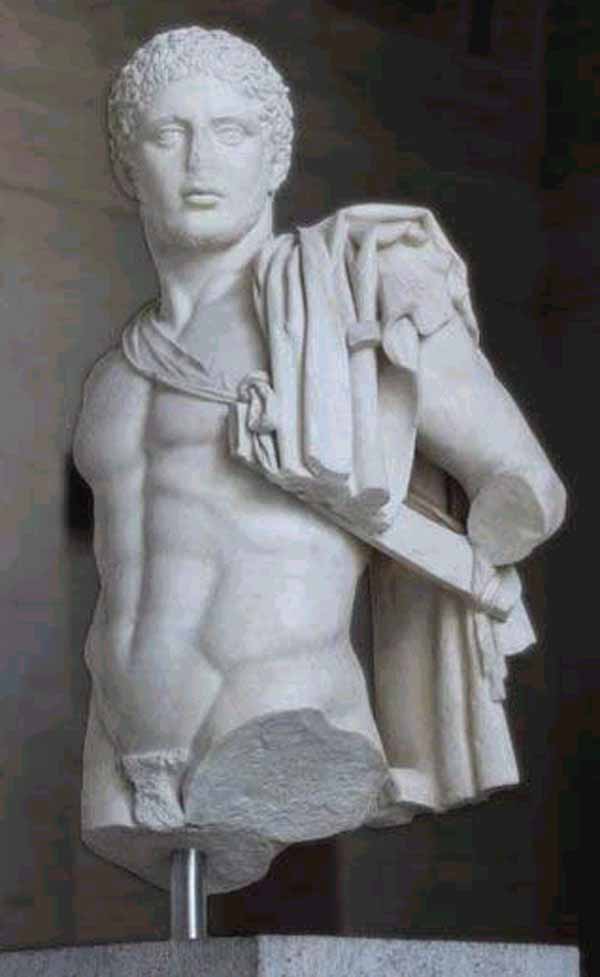
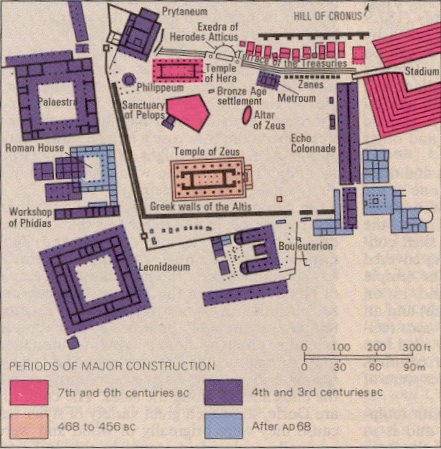
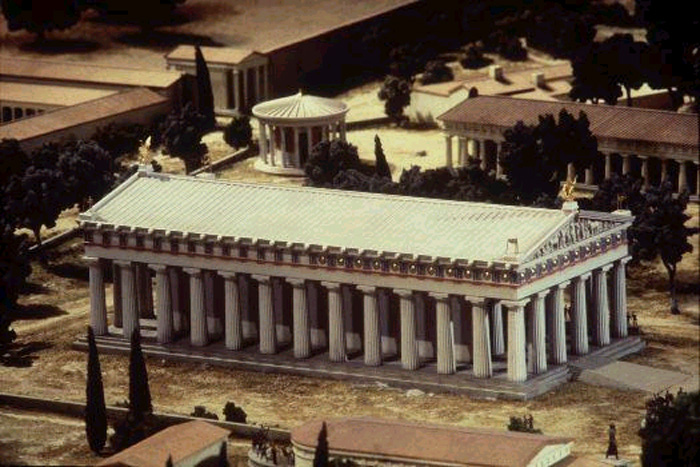
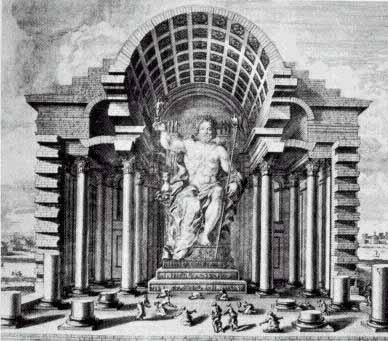
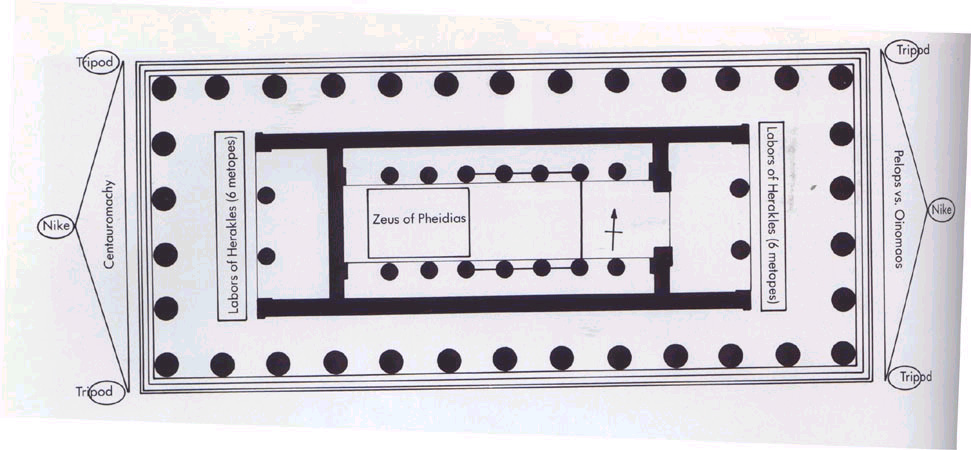
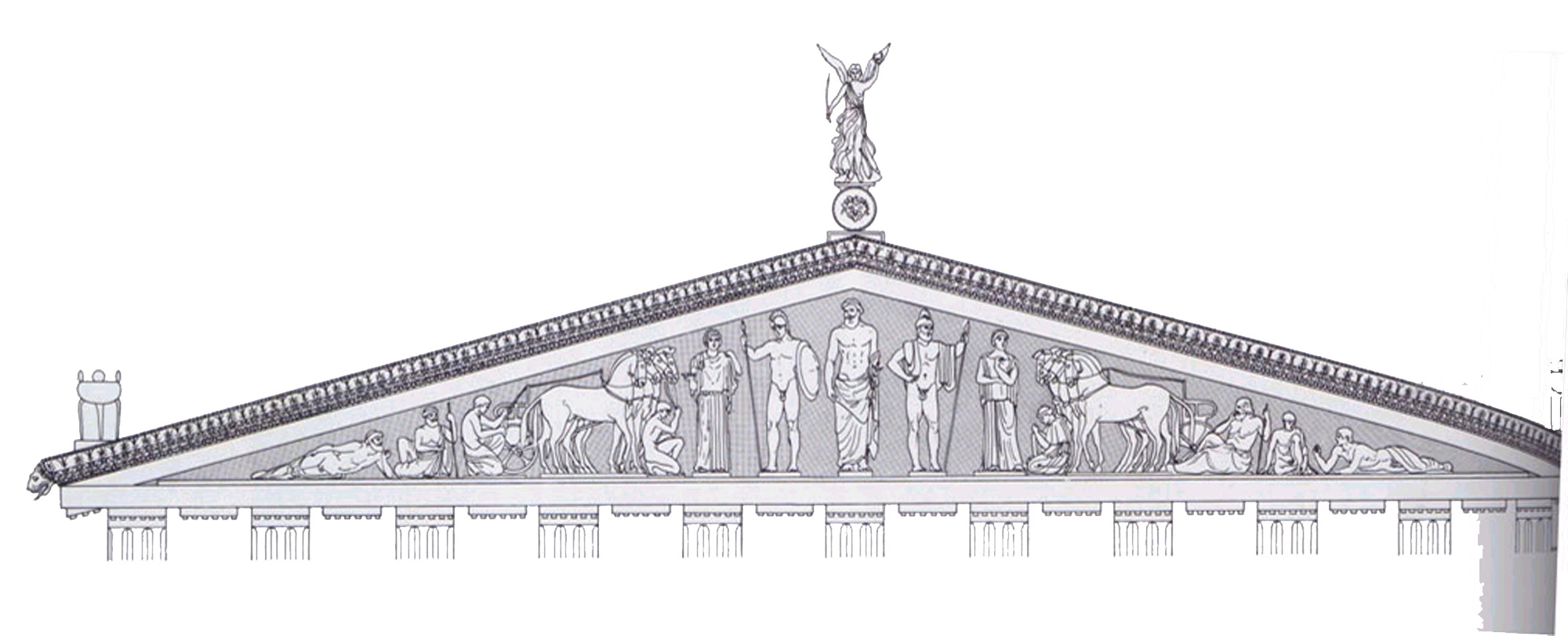
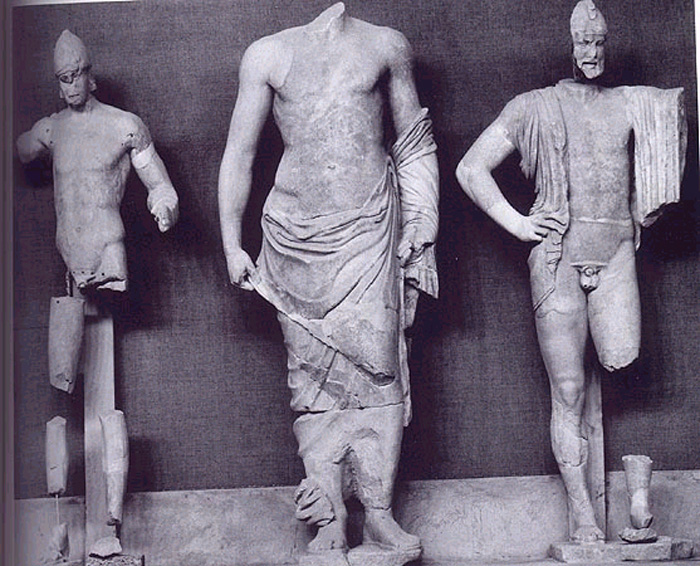
Pelops, Zeus, Oinomoas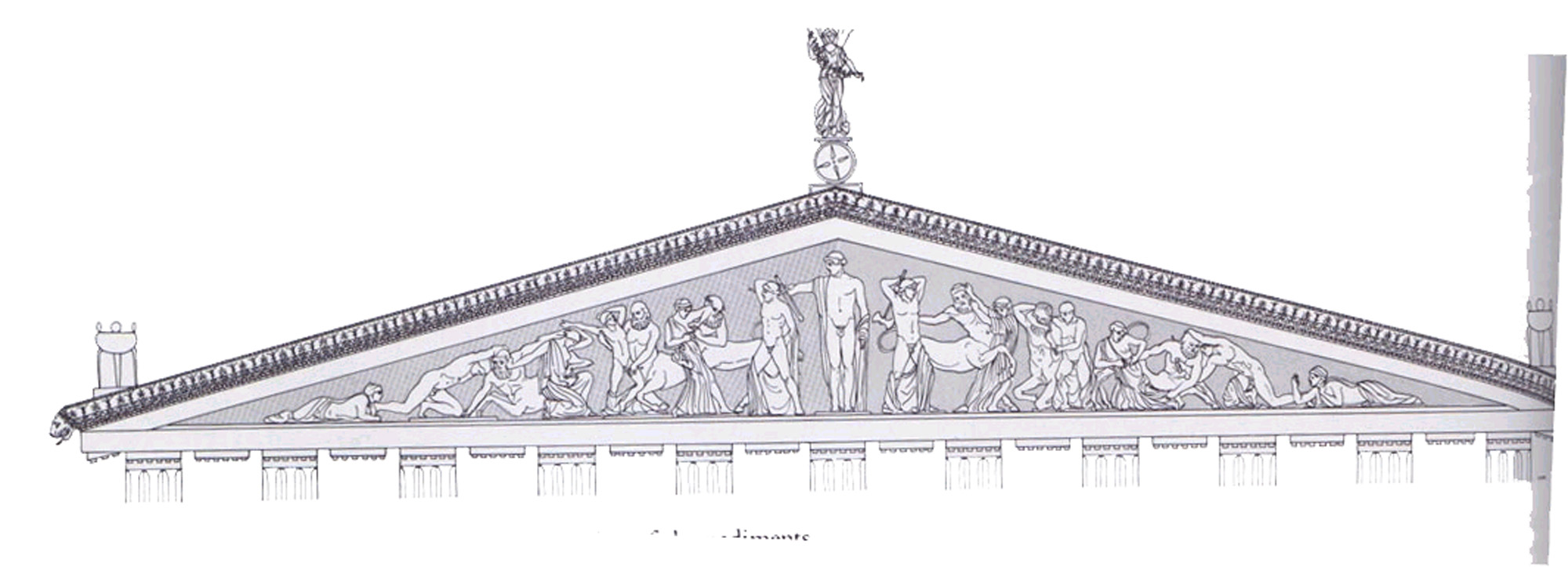
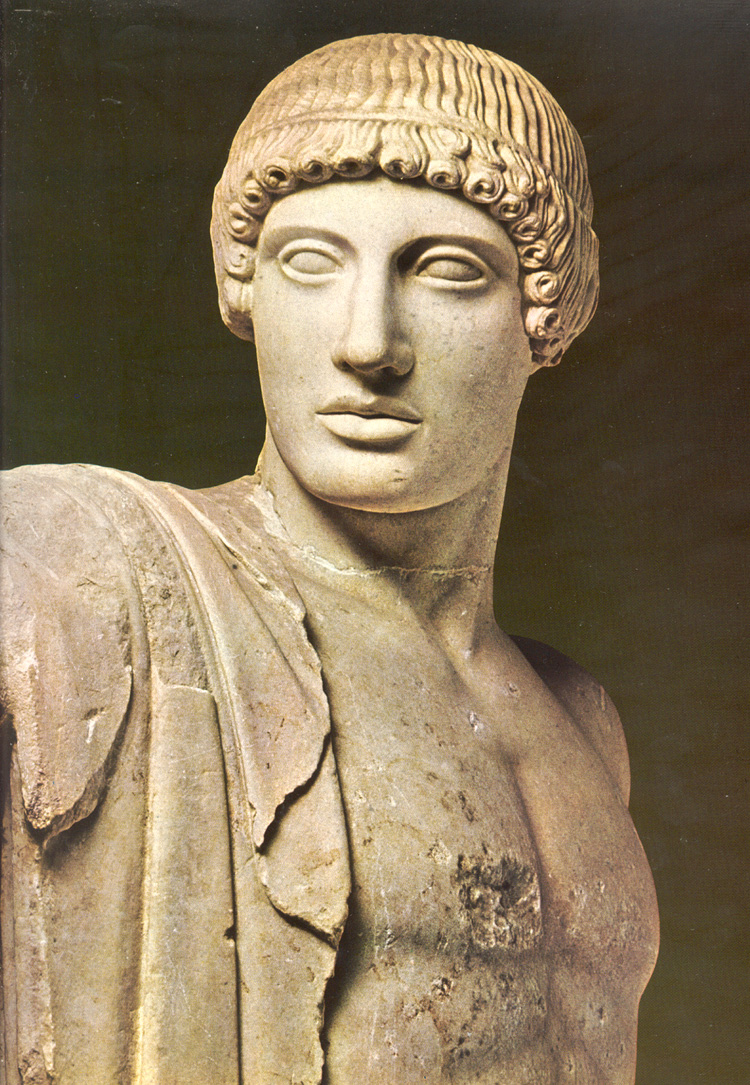
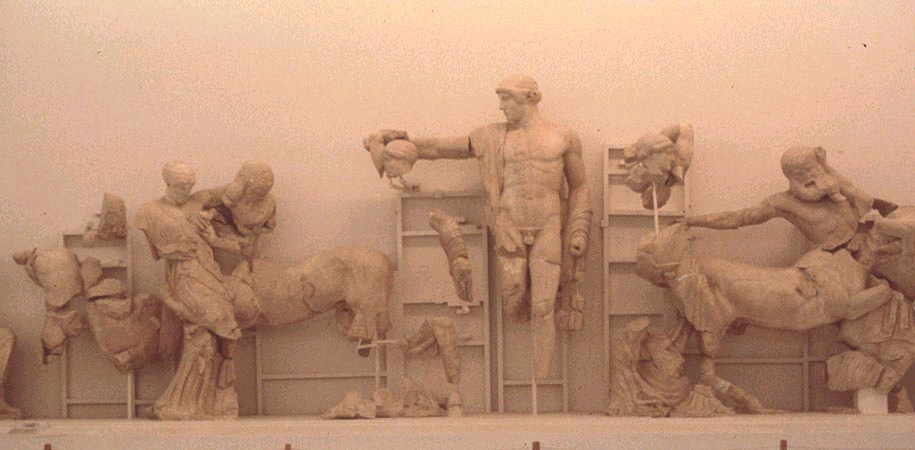
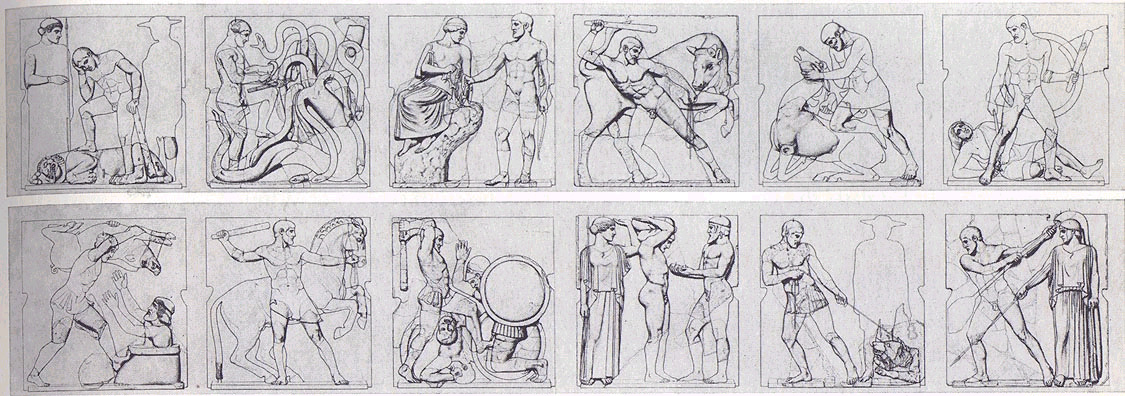
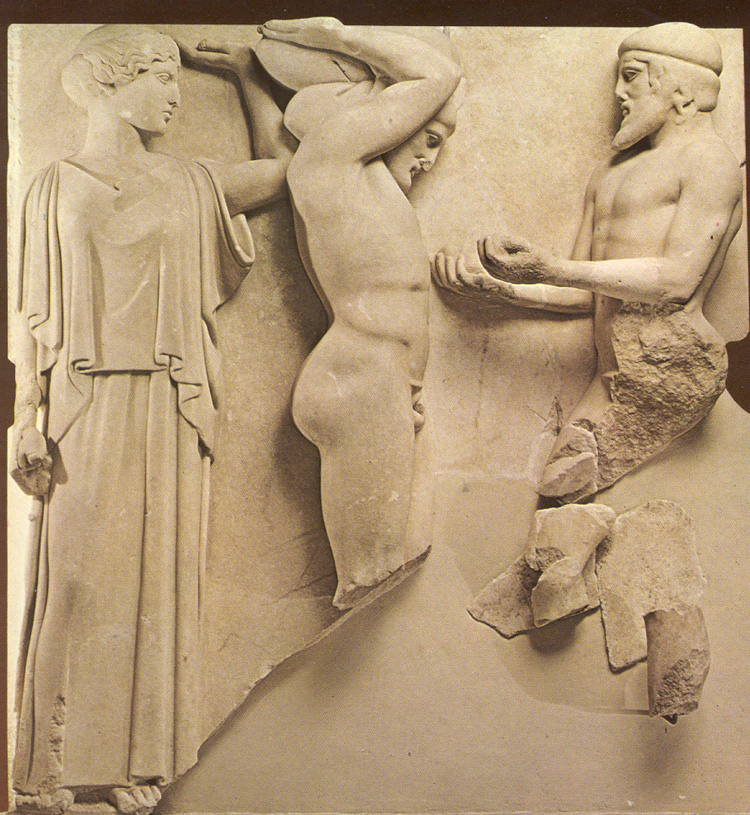
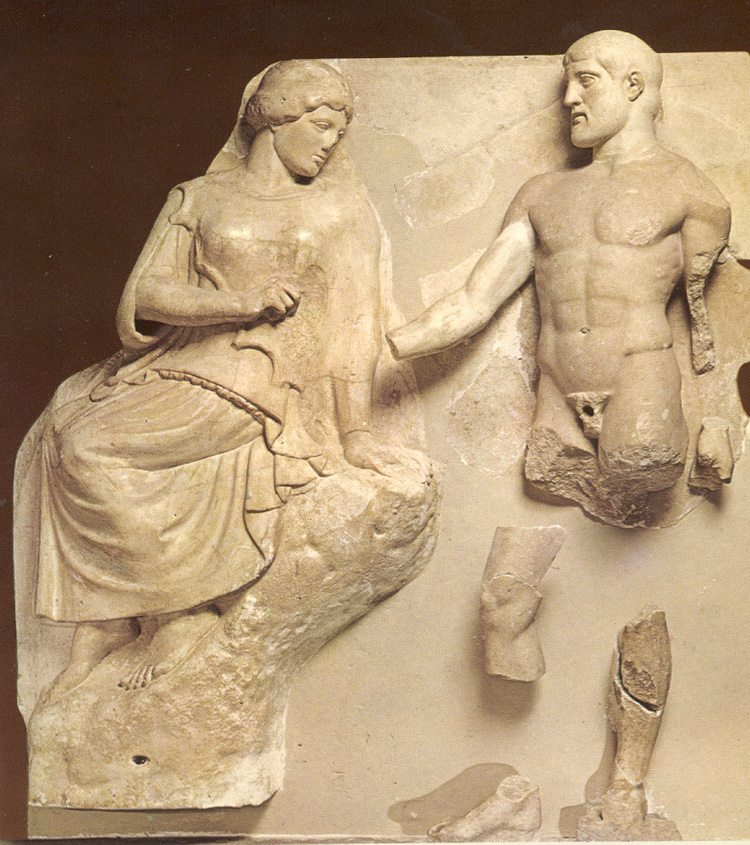
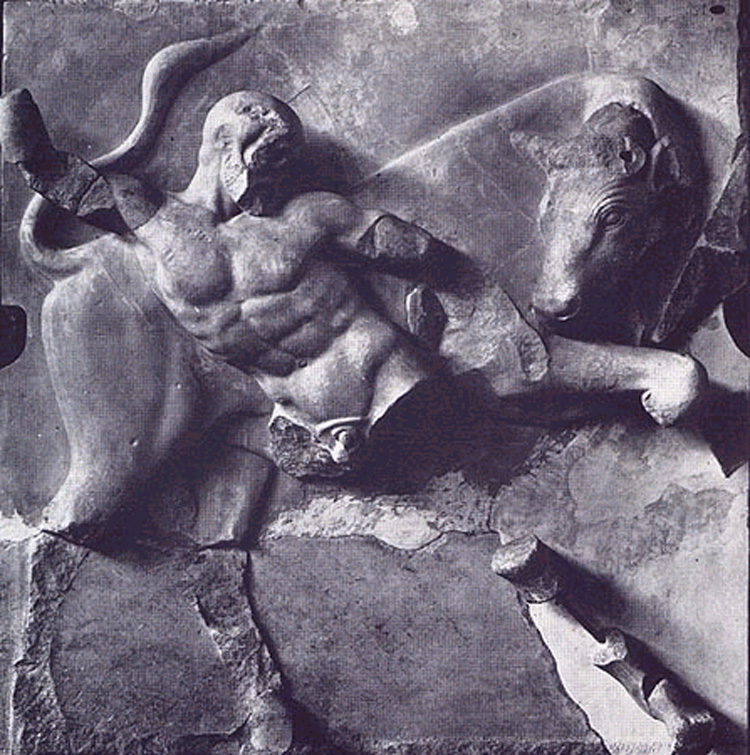
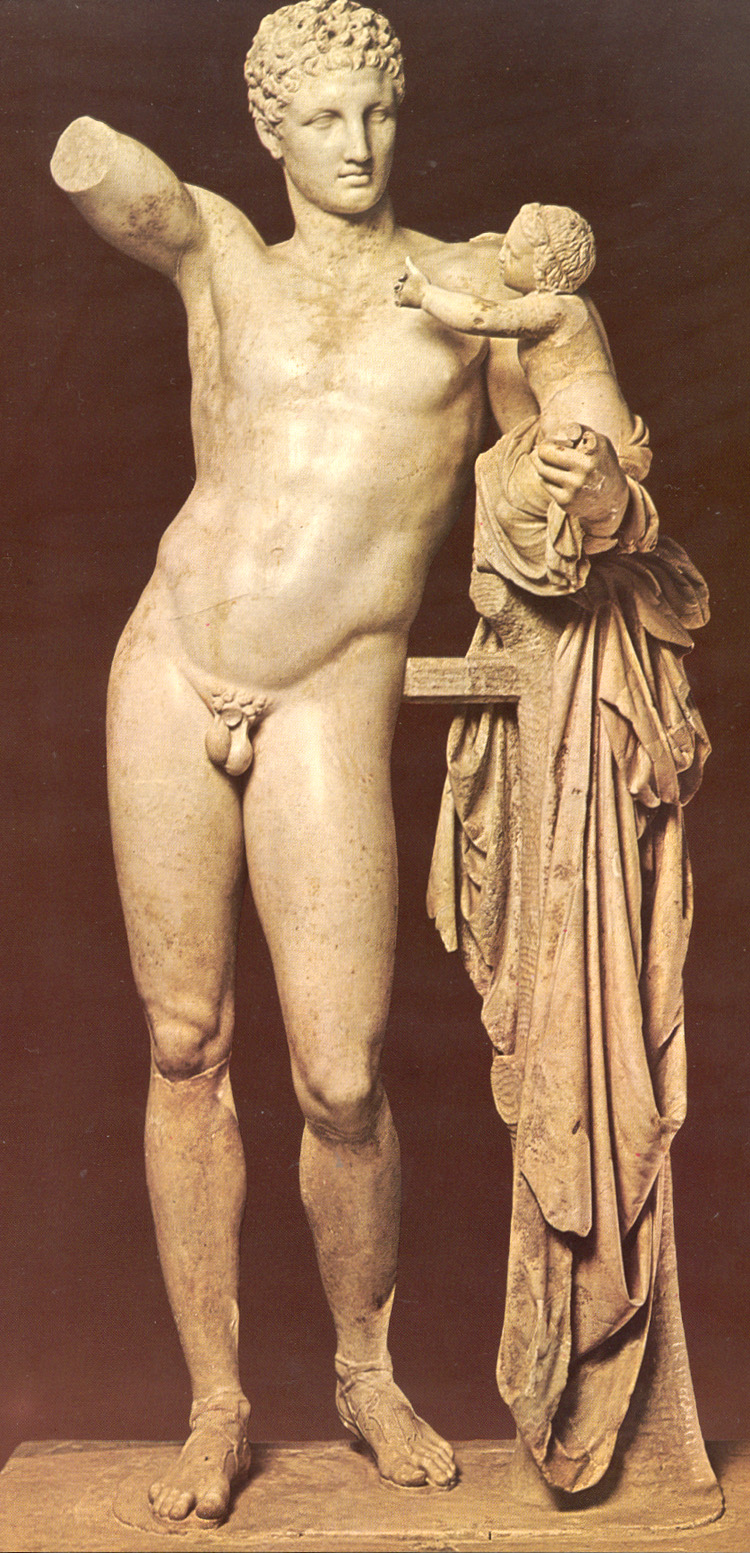
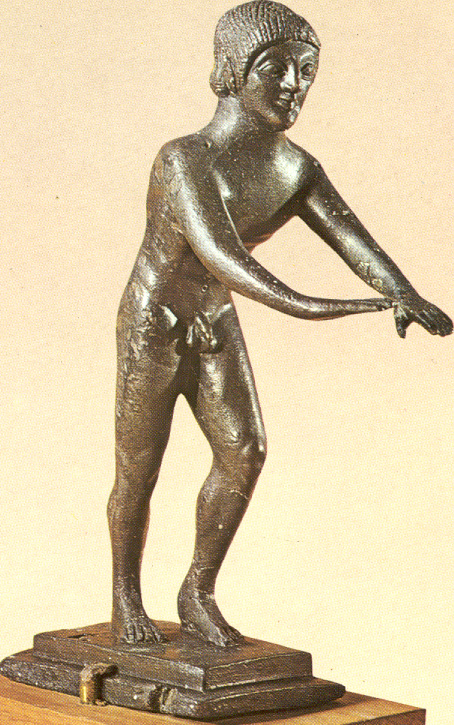

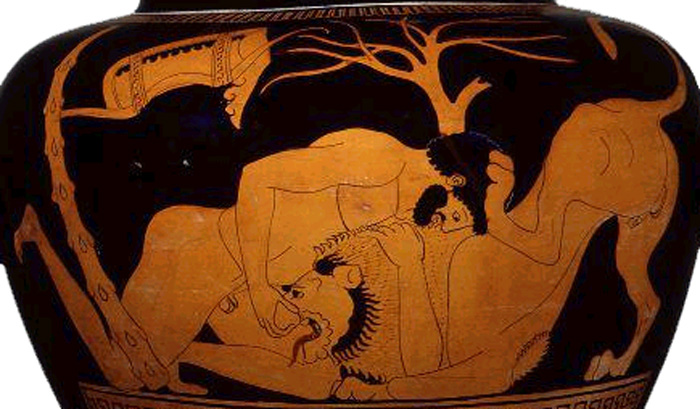

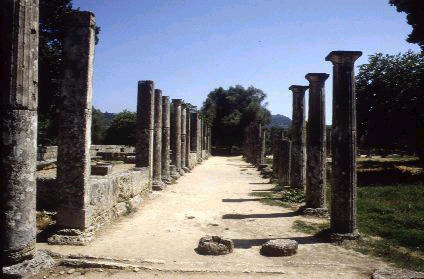
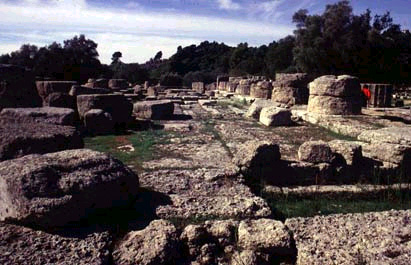
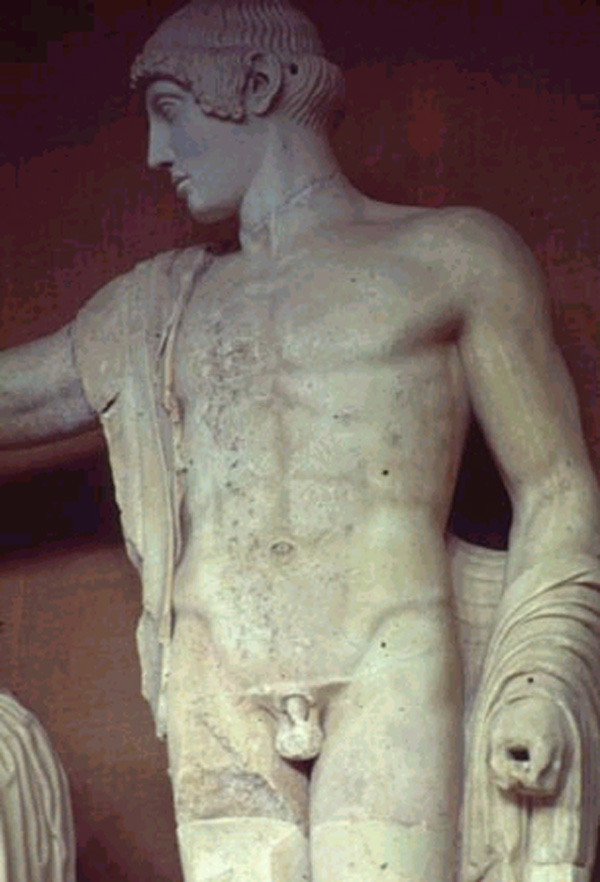

and dropped on him, and behind them brilliant Achilleus held the head
sorrowing, for this was his true friend he escorted toward Hades.
they laid him down, and quickly piled up the abundant timber.
And now brilliant swift-footed Achilleus remembered one more thing.
He stood apart from the pyre and cut off a lock of fair hair
Which he had grown long to give to the river Spercheiros, and gazing
in deep distress over the wine-blue water, he spoke forth:
"Spercheiros, it was in vain that Peleus my father vowed to you
that there, when I had won home to the beloved home of my fathers,
I would cut my hair for you and make you a grand and holy
sacrifice of fifty rams consecrate to the waters ...
I would give my hair into the keeping of the hero Patroclus."
companion, and stirred in all of them the passion of mourning.
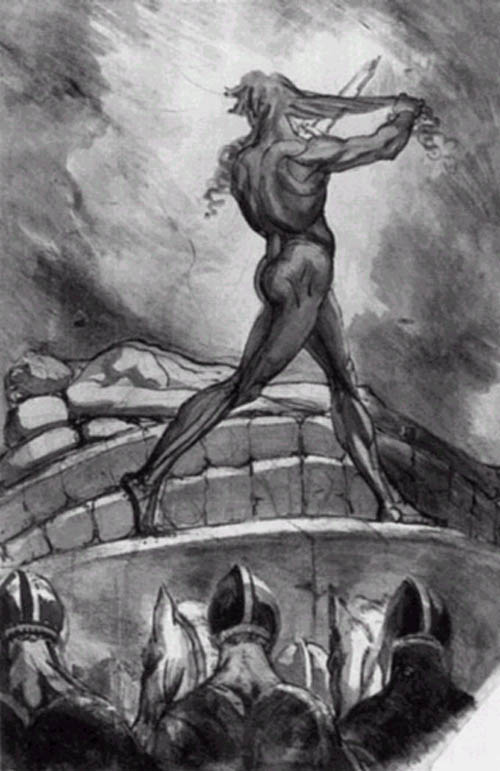
a father mourns who burns the bones of a son, who was married
only now, and died to grieve his unhappy parents,
so Achilleus was mourning as he burned his companion's
bones, and dragged himself by the fire in close lamentation.
fold of fat, until I myself enfold him in Hades.
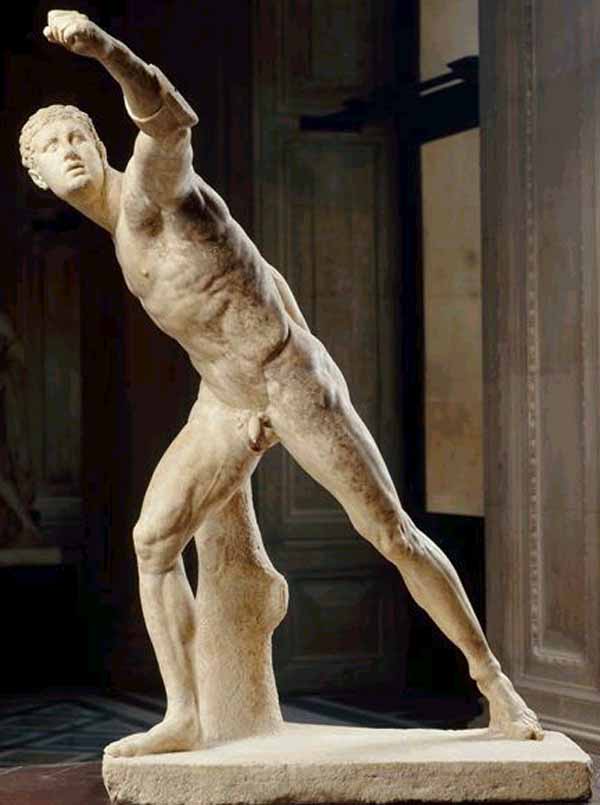
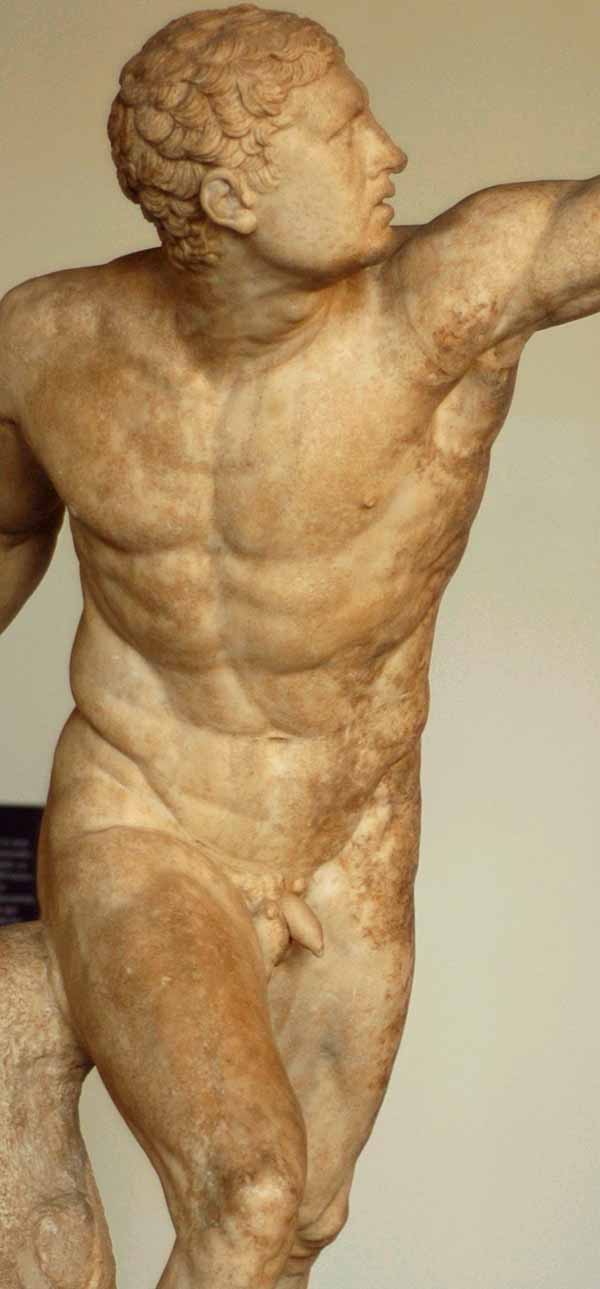
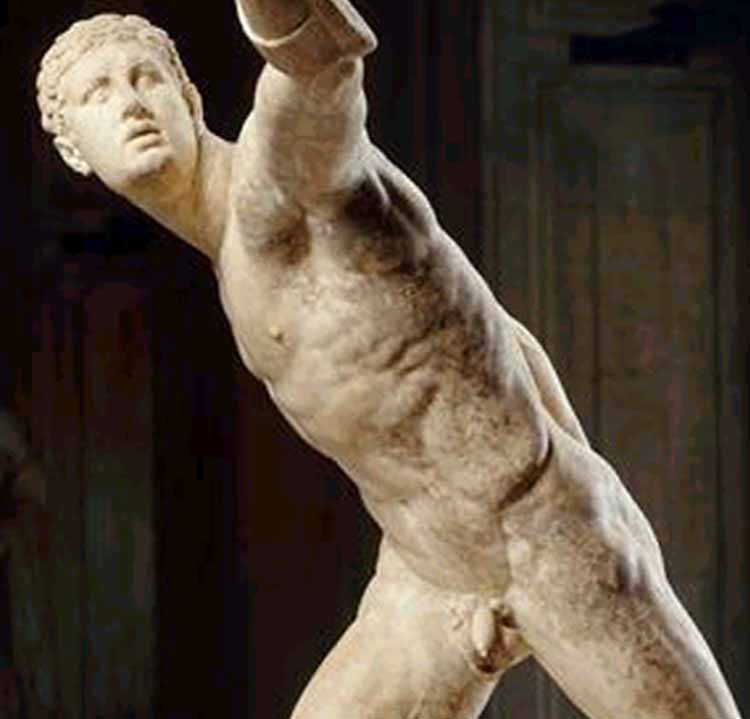
as appropriate during youth,
but whoever has seen those rays
flashing from Theoxenos' eyes
and is not flooded with desire
has a black heart forged from adamant or steel
by bright-eyed Aphrodite,
or toils compulsively for money,
or with womanly courage
is carried in service to an utterly cold path.
of holy bees bitten by the sun's heat, whenever I look
upon the new-limbed youth of boys.
So after all, in Tenedos
Persuasion and Grace dwell
in the son of Hagesilas.


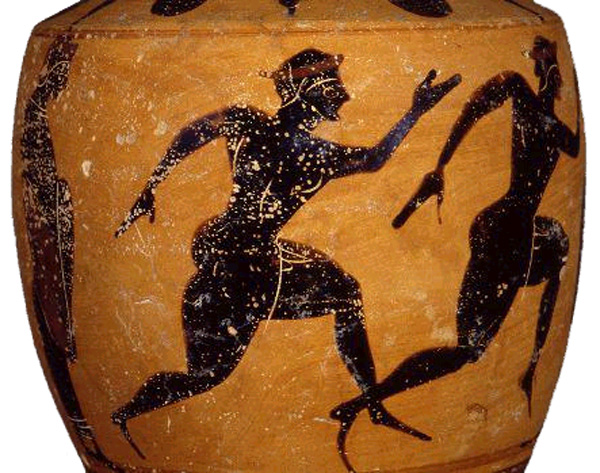

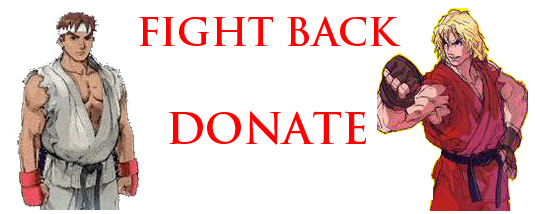
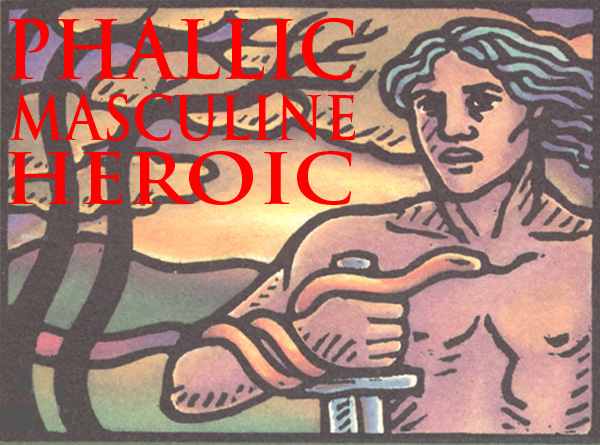



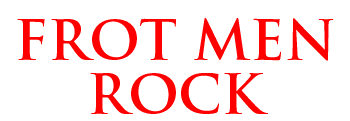
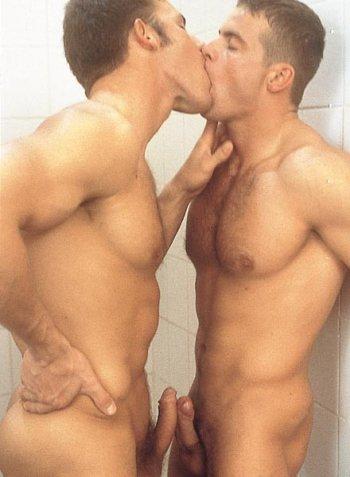


| Heroes Site Guide | Toward a New Concept of M2M | What Sex Is |In Search of an Heroic Friend | Masculinity and Spirit |
| Jocks and Cocks |
Gilgamesh | The Greeks | Hoplites! | The Warrior Bond | Nude Combat | Phallic, Masculine, Heroic | Reading |
| Heroic Homosex Home | Cockrub Warriors Home | Heroes Home | Story of Bill and Brett Home | Frot Club Home |
| Definitions | FAQs | Join Us | Contact Us | Tell Your Story |

